EOFY SALE IS HERE! Save 35% on selected course fees. Ends 30th June 2024


Diploma of Early Childhood Education and Care
SKU: CHC50121
- Flexible payment options
- Study to fit into your routine
- Nationally recognised accreditation
- Start studying as soon as you enrol
No exams, ever.
Feel right in your decision
Is this course right for me.
We speak with students everyday who aren’t sure if this is the right course or institution for them. Here are some quick links to help you decide.
How would you like to pay for your course?
Weekly instalments.
Pay in 88 instalments
Total course cost: $7,200.00 was $8,200.00
Paid weekly, over the length of your course.
Pay Upfront
One off payment
was $8,200.00
Total course cost: $5,330.00 was $8,200.00
Get the best value when you pay upfront
Get a course guide
Receive your free course guide and a consultation with an Enrolment Consultant.
By downloading the Course Guide, you agree to our Privacy Policy and receiving email and other forms of communication from us. You can opt-out at any time. This site is protected by reCAPTCHA and the Google Privacy Policy and Terms of Service apply.
Confirmation
Great choice! You're one step closer to a whole new future. As a bonus, we've sent you a free course trial with no obligation.
Speak with our team
Have questions about studying? or generally looking to get an insiders view if this course is the right fit for you? Find a time to chat with our team below
Choose date and time
Thanks XX, we look forward to speaking with you. Here are the details for our call with you.
- Skills & outcomes
- Course in detail
- Your routine
- Payment options
Intro to Diploma of Early Childhood Education and Care
Promote the Growth and Development of Young People
The nationally recognised CHC50121 Diploma of Early Childhood Education and Care is designed to prepare you for a successful career in Childhood education. You will learn how to develop the knowledge and skills to work across a range of early childhood settings, lead a team to success and ignite children's imaginations.
Job Outcomes
- Assistant Director/Director in a Childcare centre/Area Manager
- Childcare Supervisor
- Early Childhood Teacher (for those holding Primary Teaching Qualifications)
- Family Day Care Educator or Area Coordinator
- Lead Educator
- Outside of School Hours Care Coordinator
- Support worker for a child with additional needs
- Communication skills
- Management skills
- Education practices
- Team management
Course breakdown
What you’ll learn in this course.
In this qualification, you will learn how to plan, implement and manage programs in early childhood services and be responsible for supervising a team of staff. Become a valued part of the early childhood education sector, and make an impact on children’s lives today.
Develop workplace policies and procedures for sustainability
- Prepare workplace sustainability policies.
- Implement workplace sustainability policies.
- Review implementation of workplace sustainability policies.
Reflect on and improve own professional practice
- Reflect on own practice
- Enhance own practice
- Facilitate ongoing professional development
Manage team effectiveness
- Establish team performance plan.
- Develop and facilitate team cohesion.
- Facilitate teamwork.
- Liaise with stakeholders.
Support the learning and development of teams and individuals
- Contribute to needs development.
- Support implementation of learning and development.
- Monitor and evaluate workplace learning.
Manage and promote diversity
- Research diversity in the workplace.
- Foster diversity.
- Adapt communication strategies.
- Contribute to workplace diversity policies and procedures.
Embed environmental responsibility in service operations
- Enhance children’s environmental responsibility.
- Promote environmental responsibility in the service.
- Implement and evaluate environmental responsibility plan.
Facilitate compliance in a children's education and care service
- Interpret the National Quality Framework (NQF).
- Interpret the National Quality Standard (NQS).
- Facilitate service self- assessment.
- Facilitate the development of a Quality Improvement Plan (QIP).
- Coordinate the service for a rating and assessment visit.
Maintain a safe and healthy environment for children
- Identify health and safety policies and procedures of the service.
- Monitor and implement health and safety policies and procedures.
- Monitor risk.
- Contribute to health and safety policies and procedures.
- Manage risk for excursion.
Work in partnership with childrens families
- Establish and maintain relationships with families.
- Collaborate with families to share information about the child.
- Support children’s connection with community.
- Provide information about government and community services and resources.
Plan and implement children's education and care curriculum
- Seek information to inform curriculum design.
- Design curriculum.
- Implement curriculum.
- Evaluate teaching and learning.
Analyse information to inform children's learning
- Gather information about children
- Interpret information on children’s development and learning
- Use information to inform practice
Foster positive and respectful interactions and behaviour in children
- Develop guidelines that support positive and respectful interactions and behaviour in children
- Observe and monitor interactions and behaviour in children
- Identify challenging behaviours
- Plan support for children
- Implement and evaluate support plan
Implement strategies for the inclusion of all children
- Promote inclusion and inclusive practices
- Identify barriers affecting children’s participation
- Develop individual plan for support and inclusion
- Implement plan to meet the child’s needs
- Monitor and evaluate strategies
Nurture creativity in children
- Understand the role of the arts in development and learning
- Create experiences that nurture creativity
- Nurture creativity through teaching and learning
- Nurture creativity through engagement with children
- Evaluate experiences
Foster holistic early childhood learning, development and wellbeing
- Extend knowledge of early childhood learning and development
- Support children’s sense of belonging
- Plan and provide opportunities for children’s learning and development
- Foster holistic and collaborative practice
- Evaluate work practice
It was a very amazing experience, and after completing l was promoted. Now l am already a manager in a center. I'm so grateful to OC for doing a very good job in training me. I was equipped with lots of skills that my fellow colleagues, who are diploma qualified, never had.
Was really impressed with the institution and am happy with the overall course and dealings from Open Colleges staff.
I had the most easy experience with Open Colleges! I’d definitely go back to them if I choose to study again!
Studying with Open Colleges
Study designed to fit into your routine
What ever your reason for study, our courses are designed to fit into your routine.
We mean it. Instead, assessments range from open book multiple choice quizzes, portfolios, videos & written assessments
Flexible study to fit into your routine
Study anywhere at any time with 24/7 access to your units.
A learning platform optimized for online study
Our courses are curated to maintain engagement across video, written content, assignments & audio.
Envision your routine while studying with Open Colleges
How quickly do you want to finish your course?
- Daily routine
Coffee + Study
Morning routine + commute
Lunch + Study
Evening routine
Study session
Study for a minimum 28 hours per week to complete modules in 12 months
Study for a minimum 18.7 hours per week to complete modules in 18 months, study for a minimum 14 hours per week to complete modules in 24 months.
Your course may include work placement which will be completed in addition to weekly study blocks.
We'll help you study smarter!
Get in touch for tailored study advice
Your trainer
Charmaine debono, frequently asked questions, how many hours of work placement do i need to do for diploma of early childhood education and care.
The course contains a minimum of 320 hours of work placement. Work placement hours can be done part time or as a block, depending on the host organisation's requirements and availability. To find out what the suitable workplaces are for this course, download the course guide.
Do I need to complete the Certificate III Early Childhood Education and Care first
Yes. In order to enrol in the Diploma, you must hold a CHC30121 Certificate III in Early Childhood Education and Care or the CHC30113 Certificate III in Early Childhood Education and Care.
Will I be able to run my own Family Day Care Centre after this Diploma
From 1 July 2023, new family day care educators must hold an approved certificate III level (or higher) qualification prior to commencing their role in a family day care service and they cannot be 'actively working towards' a qualification. FDC requirements vary, so please check the regulations are requirements for your state.
Study and pay, your way
Payment options, full course breakdown.

Take your first step towards an exciting new career
Read full biography.
- Choosing a selection results in a full page refresh.
- Opens in a new window.
| You might be using an unsupported or outdated browser. To get the best possible experience please use the latest version of Chrome, Firefox, Safari, or Microsoft Edge to view this website. |
- Early Childhood Education Degrees Online
Early Childhood Education Degrees Online: Best Of 2024

Updated: Jul 28, 2023, 9:53am
Early childhood education dates back centuries and has helped shape modern child development, which places play and personal interests at the heart of early education. By earning an early childhood education degree online, you can make your mark in this vital and impactful field.
Today, the field of early childhood education (ECE) focuses on social, behavioral and cognitive development through meaningful experiences with peers and adults. While classroom settings remain crucial to a child’s development, many modern early education classrooms provide a holistic approach to learning, including plenty of time for children to explore their interests, build skills and foster relationships.
If you’re looking for a rewarding career working with or advocating for children, consider pursuing a bachelor’s degree in early childhood education . ECE programs explore the various factors influencing child behavior and development, creating a deep understanding of young children’s needs at each stage of growth.
This page ranks the top 10 U.S. universities offering online early childhood education degrees. Read on to learn more.
- Best Affordable Early Childhood Education Degrees Online
- Best Online Doctorate In Educational Leadership Programs
- Best Master’s In ESL Online Programs
- Best Online Teaching Degrees
Why You Can Trust Forbes Advisor Education
Best early childhood education degrees online.
- Featured partners
How to Find the Right Online Early Childhood Education Degree for You
Cost of an early childhood education online bachelor’s degree, methodology, frequently asked questions (faqs) about online early childhood education degrees.
The Forbes Advisor Education team is committed to bringing our readers unbiased rankings and trustworthy, informative articles covering higher learning institutions, individual degree programs, bootcamps, professional credentials and various career paths.
Our team sources data from the National Center for Education Statistics and the U.S. Bureau of Labor Statistics. We also pull information from reputable professional organizations and education providers’ direct websites. Our rankings use a strict methodology to determine the best schools, programs or bootcamps for each category.
Moreover, an expert advisory board of experienced professionals and educators reviews and verifies Forbes Advisor Education content to ensure accuracy and completeness.
University of Washington
Florida international university, national louis university, ball state university, mercy college, east carolina university, chaminade university of honolulu, eastern oregon university, university of michigan-flint, university of north carolina at greensboro.

$231/credit
Distance Education Reciprocity Agreement
Application Fee
As a degree-completion program, the University of Washington ‘s online bachelor of arts in early care and education takes full-time students at least seven quarters to complete, depending on whether they transfer previously earned credits. ECE majors at UW must have completed at least 45 credits at another accredited school. Learners may enroll in this program either full time or part time.
The program teaches skills through research, observation, and hands-on planning and implementation. Students also complete up to five hours weekly in a community-based learning environment working with children from birth through age 8.
Students must obtain several technology products to participate in UW’s ECE program, including a webcam, video editing software and course-specific software.
- High student retention rate
- Relatively high graduation rate
- High median earnings among graduates
- Relatively high student-to-faculty ratio
- Low socioeconomic diversity

$229/credit (in state)
Located in Miami, Florida, Florida International University offers an online early childhood education degree through its School of Education and Human Development. The bachelor of science in early childhood education is a 120-credit, non-licensure program delivered using asynchronous learning.
Students participate in peer discussions and receive quick instructor feedback on their assignments, fostering a collaborative learning experience. FIU also pairs learners with a success coach for one-on-one assistance with their academic and career goals.
The FIU early childhood education degree explores cognitive, social-emotional and physical development through courses covering art in early childhood, communities and families, and the importance of play.
- Relatively low average annual net price
- Relatively high student retention rate
- Relatively high percentage of students in federal student loan deferment

$11,505/year
National Louis University , a private college, offers three online ECE bachelor’s programs: a BA in early childhood and elementary education, a BA in early childhood education, and a competency-based BA in early childhood education. The ECE degree tracks prepare future educators for work with children from birth through second grade. The early childhood and elementary education track targets birth through sixth-grade development and learning.
The competency-based BA serves professionals who already hold an associate degree and work in early childhood education. Like the other ECE programs, this accelerated track requires 180 quarter hours, but competency-based learners can transfer earned credits and experience to reduce their degree timeline.
Eighty-three percent of NL students receive the federal Pell Grant, indicating high socioeconomic diversity at the school.
- High socioeconomic diversity
- Accelerated option for working educators
- Relatively low percentage of students who take out federal student loans
- Relatively high average annual net price
- Relatively low graduation rate

$4,217/semester (in state)
Ball State University , based in Muncie, Indiana, features several online programs, including a non-licensure early childhood education degree. Ball State refers to this degree track as a “completer program;” applicants should have completed an associate degree or at least 45 credits at a previous college. The ECE major requires 90 credits.
Learners explore various aspects of childhood development, including the parent-child relationship, development through play and education in infancy. Some courses are eight weeks long, but most last 16 weeks.
In addition to tuition, Ball State charges its distance learners a technology fee of $168 for seven or more credits or $110 for fewer than seven credits. The university reduces its out-of-state fee for online learners, charging distance learners outside of Indiana an additional $218 per credit, as opposed to $759 per credit for on-campus out-of-state students.
- Relatively low percentage of students in federal student loan deferment
- Relatively low student-to-faculty ratio
- Relatively low graduation rate among Pell Grant recipients vs. all students

$11,053/term (undergraduate)
A private university, Mercy College ‘s behavioral science and early childhood education degree is available online for most distance learners. Online students within 60 miles of Mercy’s campus in Dobbs Ferry, New York, may have to register in person to complete a one-semester student teaching experience.
Mercy’s ECE program allows students to complete their bachelor’s and master’s degrees simultaneously, earning both diplomas in five years total. The 144-credit bachelor’s program includes 105 undergraduate credits and 15 graduate credits taken during the bachelor’s degree portion. Graduates may then complete another 24 credits, including student teaching, to earn their master’s in early childhood education.
- Relatively high median federal student loan debt among graduates

$4,073/term (in state)
Online students pursuing East Carolina University ‘s bachelor of science in birth-kindergarten teacher education work directly with young learners in local schools and developmental centers over two semesters. Those near ECU’s campus can train in the on-site Nancy M. Darden Child Development Center.
Online learners must complete a few on-site requirements, including a program orientation, upper-level interviews and internship seminars.
The four-year program entails 120 semester hours covering child development, language and literacy, assessment for intervention and parent-teacher collaboration. Accredited by the Council for the Accreditation of Educator Preparation, this ECU program can lead to teaching licensure in North Carolina.
- Uses Common App
- Relatively high percentage of students who take out federal student loans

$585/credit
Chaminade University of Honolulu ‘s online early childhood education program includes 120 credits, which take about four years to complete. Students must pass five prerequisite courses before declaring the ECE major. Prerequisites include child development and health and family issues in early childhood development.
The program includes two student teaching experiences in approved educational settings, requiring at least 60 hours of observation and participation. Students complete a fieldwork seminar alongside each experience to discuss their plans, strategies and challenges.
Over half of Chaminade’s students qualify for the federal Pell Grant. Online learners pay a $93 technology fee per class.

$286/credit (in state)
Future teachers can begin their early childhood education careers with Eastern Oregon University ‘s ECE degree. Learners can transfer up to 135 previously earned credits to reduce the time and costs associated with this 180-credit program, which otherwise takes four years to complete.
Although all courses are delivered online, students must complete two in-person practicums to observe licensed educators and put their skills into practice. These experiences can take place at child care centers or in primary or secondary schools.

$516/credit (in state)
The bachelor of science in early childhood studies from the University of Michigan-Flint evaluates child development and learning from birth through age 8. Graduates often go on to work as educators in child development or preschool centers or as child advocates in government agencies.
During the program, students participate in up to 180 hours of field experience, collaborating with other educators and working with children. The campus’s on-site childhood development center welcomes learners who live near UM-Flint, but instructors can also approve other centers.
The 128-credit program includes courses in communication and language, society and classroom management. Early childhood studies majors can also pursue a mathematics or language arts elementary education minor consisting of 20 to 26 credits.

$5,436/year (in state)
The University of North Carolina at Greensboro offers an online bachelor of science in human development and family studies to learners who already hold an associate of applied science. Students need 120 credits in total to complete the bachelor’s degree program.
While some classes in this program are asynchronous, others meet at specific times during lunch hours or evenings. Online learners must complete an in-person field placement to gain experience working with children in an early childhood setting.
All online students pay in-state tuition rates at UNC Greensboro, and tuition costs less for online learners than for their on-campus peers. Distance learners must pay a $20 per credit technology fee, which caps at $240 per semester.
- Does not use Common App
To make the most of your time and financial investment, consider the following before choosing an early childhood education online bachelor’s degree.
Know Your Time Commitment
Online early childhood education programs often require some in-person or scheduled components, such as field placements or live instructor-led classes. This may be challenging for distance learners with full-time jobs or other personal commitments.
If you have a busy schedule, look for an ECE program that works around your obligations. Some programs offer live meetings during evenings or on weekends. For maximum flexibility, you might seek an asynchronous program, which is largely self-paced and allows you to watch lectures at your convenience. If you do not mind a longer degree timeline, part-time enrollment may make it easier to balance your studies with your other responsibilities.
Look at Accreditation
If you plan to pursue an ECE teaching credential, you should prioritize institutional and programmatic accreditation in your degree search.
Institutional accreditation validates a school’s commitment to student outcomes, academic achievement and quality faculty. Programmatic accreditation does the same for specific programs or departments.
Most states require licensed teachers to hold degrees from institutionally accredited schools. Programmatic accreditation provides further quality assurance for your chosen degree program. The National Association for the Education of Young Children commonly endorses higher education programs in early childhood studies.
Consider Your Future Goals
Do you plan to continue your studies after completing an online early childhood education degree? If so, finding a university that offers graduate opportunities in the early education field may be helpful, even during undergrad. Some programs, like Mercy College’s bachelor’s-to-master’s dual-degree program , provide an accelerated pathway for students to earn both their bachelor’s and master’s degrees in early childhood education .
If you want to pursue your teaching credential after earning your degree, ensure you earn a degree that prepares you for licensure in the state where you plan to teach. Non-licensure programs may not meet these credentialing standards.
According to the National Center for Education Statistics , the average public, four-year college charged $9,375 in tuition and fees for in-state, undergraduate students during the 2020-2021 school year. Out-of-state tuition and fees cost $27,091 per year on average. A typical online bachelor’s degree in early childhood education aligns with the national average at about $200 to $750 per credit, or $6,000 to $22,500 per year.
ECE majors should also consider the potential costs of student teaching. Most schools require in-person field placements, which may affect learners’ ability to work full time during their studies. If you plan to keep a job while you earn your degree, prepare for this potential break in work.
We scored 76 accredited, nonprofit colleges offering online bachelor’s degrees in early childhood education in the U.S. using 16 data points in the categories of credibility, affordability, student outcomes, student experience and application process.
We pulled the data for these categories from reliable resources such as the Integrated Postsecondary Education Data System ; private, third-party data sources; and individual school and program websites. We weighted each category as follows:
Student Outcomes: 38% Affordability: 28% Student Experience: 14% Credibility: 10% Application Process: 10%
Specific characteristics we considered within each category include accreditation, nonprofit status, average net price per year, median earnings among graduates, overall graduation rate, socioeconomic diversity, online offerings and Common App participation.
We chose the 10 best schools to display based on those receiving a curved final score of 79.85% or higher.
The highest-ranking schools are fully accredited, nonprofit institutions with relatively high student retention rates and overall graduation rates.
What is the best degree for early childhood education?
People interested in early childhood education careers typically start with a bachelor’s degree in early childhood education. However, a master’s in early childhood education may make it easier to earn licensure and increase earning potential. Some schools offer bachelor’s-to-master’s programs, which allow students to begin their graduate studies while finishing their bachelor’s, shortening the completion time to earn both degrees.
What is meant by early childhood development?
Early childhood development refers to children’s social-emotional, physical, behavioral and cognitive development from birth through age 8. Experts believe that parenting, play, socialization and early learning experiences contribute to early childhood development.

As a self-proclaimed lifelong learner and former educator, Amy Boyington is passionate about researching and advocating for learners of all ages. For over a decade, Amy has specialized in writing parenting and higher education content that simplifies the process of comparing schools, programs and tuition rates for prospective students and their families. Her work has been featured on several online publications, including Online MBA, Reader’s Digest and BestColleges.
- [email protected]
- 1300 511 455
- For all enquiries:
- National Qualifications
- SOCIAL ENTERPRISE
- Childcare Courses
- Teacher Aide Courses
- School Age Education and Care
- Austudy & ABSTUDY
- Academic Honesty Policy
- Application for Enrolment
- Certification Issuance Policy
- Complaints and Appeals Policy
- Compliance Policy
- Confidentiality Policy
- Extension and Deferral Policy
- Fees and Charge Policy
- Reasonable Adjustment Policy
- RPL and Credit Transfer Policy
- Training and Assessment Policy
- Withdrawal of Enrolment and Refund Policy
- Third Party Consent
- Work Placement
- Student Support
- Terms & Conditions
- Course Extension
- Change of Course
- Learner Login
$1499 – CHC50121 Diploma of Early Childhood Education and Care
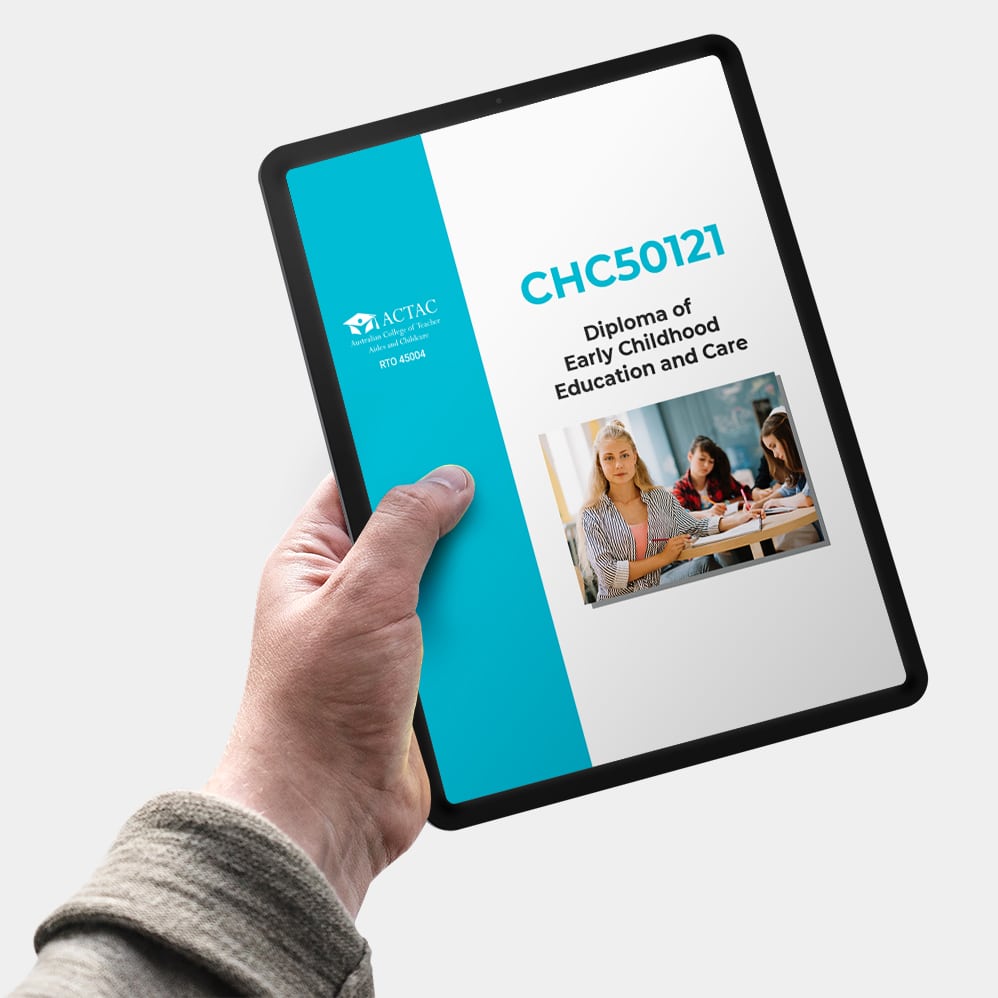
Price $ 1,499.00
| Duration: Self Paced (up to 18 months) |
| Total Units: 15 units |
| Certificate of Completion |
CHC50121 Diploma of Early Childhood Education and Care
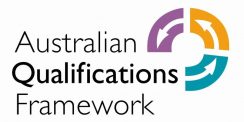
Every enrolment in this course with the Australian College of Teacher Aides and Childcare helps facilitate children completing the Act for Kids protective behaviors program in schools nationwide. ACTAC and Act for Kids have collaborated to combine decades of industry leading childhood research to produce its Nationally Recognised qualifications. As a social enterprise we are proud to offer industry leading qualifications backed by the best in the industry that gives back to community.
ACTAC is a proud member of the
Queensland Social Enterprise Council
Queensland Social Enterprise Limited (QSEC) exists to support a vibrant, innovative and capable social enterprise sector in Queensland that is sufficiently resourced to achieve high social, cultural and environmental impact.

Before your enrol!
Did you know you are required to hold either CHC30121 or CHC30113 to study CHC50121 Diploma of Early Childhood Education and Care?
To support individuals looking to enter the childcare education industry ACTAC is offering an industry leading Dual Qualification in Early Childhood Education which includes both CHC30121 and CHC50121 at a massively reduced price!
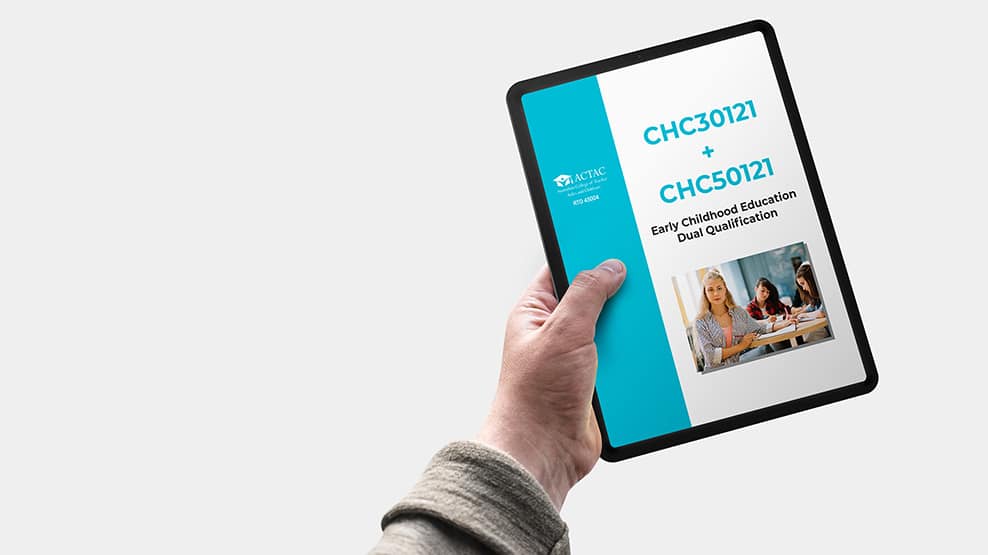
AFFORDABLE UPFRONT PAYMENT
Payment plan, enrol today risk-free, if you decide that this course isn’t the right fit, you’ll receive a 100% refund if you withdraw within the first 14 days., course description.
CHC50121 Diploma of Early Childhood Education and Care reflects the role of educators in early childhood education and care who work in regulated children’s education and care services in Australia. As an educator at this level you are responsible for designing and implementing curriculum that meets the requirements of an approved learning framework and for maintaining compliance in other areas of service operations. You will use specialised knowledge and analyse and apply theoretical concepts to diverse work situations. You may have responsibility for supervision of volunteers or other educators.
As an early childhood educator you will work in long day care centres, family day care, pre-schools or kindergartens.
To achieve this early childhood education qualification, you must complete at least 280 hours of field placement in a regulated children’s education and care service in Australia as detailed in the Assessment Requirements of units of competency. The total number of hours may be applied collectively across all units of competency that include the requirement for workplace hours.
COURSE DETAILS
Course title, course duration.
Self-Paced 18 Months (additional 6 month extension available, conditions apply)
Course Fees
- Total Upfront Cost: $1499
- Payment Plan: $2,200 (weekly payments of $50)
Click here to find out why our courses are so competitively priced.
Course Units
| CHCPRP003 | Reflect on and improve own professional practice |
| CHCECE041 | Maintain a safe and healthy environment for children |
| CHCECE044 | Facilitate compliance in an education and care service |
| CHCECE042 | Foster holistic early childhood learning, development and wellbeing |
| CHCECE045 | Foster positive and respectful interactions and behaviour in children |
| CHCECE043 | Nurture creativity in children |
| CHCECE046 | Implement strategies for the inclusion of all children |
| CHCECE047 | Analyse information to inform children’s learning |
| CHCECE050 | Work in partnership with children’s families |
| CHCECE048 | Plan and implement children’s education and care curriculum |
| BSBTWK502 | Manage team effectiveness |
| CHCECE049 | Embed sustainable practices in service operations |
Elective Units
| CHCMGT003 | Lead the work team |
| CHCPOL002 | Develop and implement policy |
| CHCPOL003 | Research and apply evidence to practice |
Nationally Recognised
SEE ON MY SKILLS WEBSITE
Australian College of Teachers Aides and Childcare (RTO ID 45004)
Course Structure
15 units in total, including 12 core units and 3 elective units (Expected Study Hours is 1908 hours).
Course Delivery
Online via DESILMS. You will also undertake a Work Placement (minimum of 280 hours in a regulated children’s education and care service in Australia.)
Career Pathway
Depending on your long term career and study goals, upon completion of CHC50121 Diploma of Early Childhood Education, you may wish to progress to completing a Bachelor Degree in Early Childhood (Education), and even a Graduate Diploma in Early Childhood Education
Admission Requirements
To enrol in this course you must be:
- Must hold CHC30121 Certificate III in Early Childhood Education and Care or CHC30113 Certificate III in Early Childhood Education and Care
- Minimum age 18
- Provide a valid USI
- Be able to provide a suitable work placement in accordance with the work placement checklist
- Australian Citizenship
- Australian Permanent Resident
- Must hold a visa that allows domestic study (non-CRICOS)
Learner Obligations
Entry to this qualification is open to individuals who hold a CHC30121 Certificate III in Early Childhood Education and Care or a CHC30113 Certificate III in Early Childhood Education and Care.
To complete your CHC50121 Diploma of Early Childhood Education and Care:
- A computer with reliable internet access and a web browser
- A device to record video
- A calculator
- Digital presentation media (e.g. PowerPoint, video presentation, infographics, etc.)
Expected Study Hours is 1908 hours.
Qualification Status
Current – Supersedes CHC50113 Diploma of Early Childhood Education and Care
Recognition of Prior Learning (RPL)
All students will have the opportunity to have their prior learning assessed.
Our learning material and learning management system is designed with the student in mind, ensuring it is easy to study.
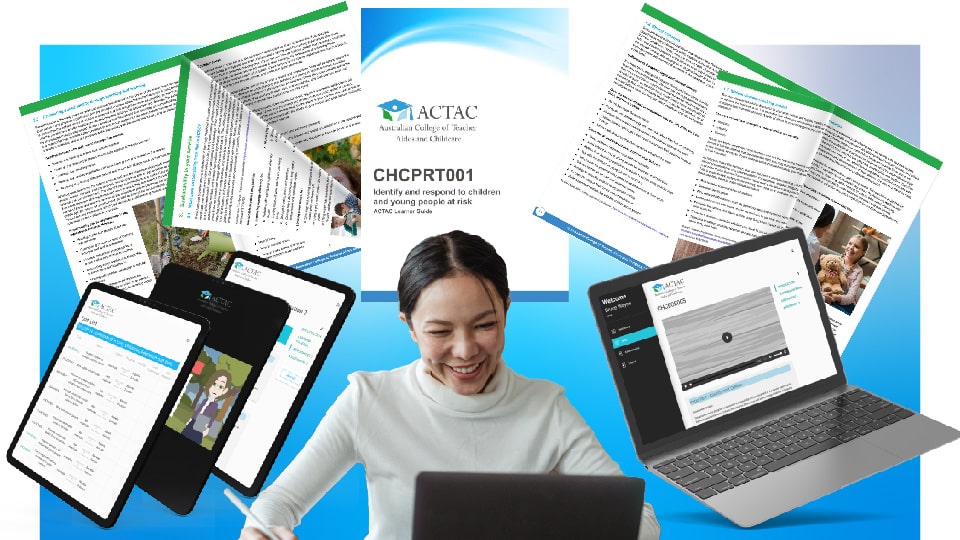
THIS PROGRAM IS PROUDLY SUPPORTED BY
Act for Kids is an Australian charity providing free therapy and support services to children and families who have experienced, or are at risk of child abuse and neglect. We have helped thousands of children and families for over 30 years.
Here at the Australian College of Teachers Aide and Childcare , we are proud to partner with organisations that understand the complex needs of children and at-risk youth, such as “Act for Kids”. When studying with us, you will not only learn valuable skills and knowledge for your future career, but you will also help one of the most vulnerable groups in our society. Every learner who enrols in a children protection course with ACTAC will facilitate one child participating in the “Act for Kids” protective behaviours program.
In the digital age we believe there is no reason for any online nationally recognised qualification to cost thousands of dollars!

Course Overview
What you will learn in this course.
The CHC50121 Diploma of Early Childhood Education and Care will give you insights and experience into a broad range of specialist skills needed as an early childhood educator.
Learners gain experience in:
- Implement strategies for the inclusion of all children
- Analyse information to inform children’s learning
- Embed environmental responsibility in service operations
And much more!
JOB OUTCOMES
Students undertaking this course can apply it to many potential job outcomes, including:
- Lead Educator
- Family day care coordinator
- Educational Leader in a service
- Lead Kindergarten Educator
- Lead Pre-school Educator
- Nominated Supervisor at service
- Service Assistant Manager/Director
- Service Manager/Director
- Area Coordinator for a group of services
FAST TURNAROUND
At ACTAC, we pride ourselves on our fast assessment turnaround. This process facilitates individualised study plans and allows you to work at a pace that suits you!
ONLINE STUDY MODE
ACTAC will provide the following resources
- One-on-one trainer support
- Online learner dashboard
- Workplace simulations and documentation
- Training products and learning support materials
NATIONALLY RECOGNISED QUALIFICATION
ACTAC only provides qualifications recognised within the Australian Qualifications Framework, a policy implemented by the Australian Governments Department of Education and Training. You can find out more about ACTAC’s nationally recognised courses and the Australian Qualifications Framework on the AQF website . We take the time to understand each individual learners’ personal circumstances and career aspirations to provide a personalised education experience.
Students who wish to study this nationally recognised qualification with ACTAC must be over 18.
DEDICATED TRAINERS AND AFTER-HOURS SUPPORT
Our trainers are not only qualified adult educators but are also qualified in their field, holding a minimum of Bachelor level qualifications and have worked in the education industry. Our specialist trainers can help you be workplace ready and equipped with the practical skills employers are looking for.
Why not have a friendly chat with a trainer today who can answer any questions you might have? Call to speak with your trainer on 1300 511 455 or for weekend and after hours support, email us at [email protected]
Our trainers will not only help you obtain your qualification, they will also give you insight into the industry making sure that you can hit the ground running after completing ACTAC’s nationally recognised childcare courses.
About Instructors
Average Rating
Detailed Rating
| Stars 5 | 0 | |
| Stars 4 | 0 | |
| Stars 3 | 0 | |
| Stars 2 | 0 | |
| Stars 1 | 0 |
CHC50121 Diploma of Early Childhood Education and Care
- Centrelink/DHS Approved
- NQF Approved Qualification
- Recognised Australia wide

On campus with some online
On Campus
On campus with some online
On campus with some online
On Campus
On campus with some online
| CAMPUS | STUDY MODE | START DATE | DURATION | WORKLOAD | WHAT YOU'LL PAY |
|---|---|---|---|---|---|
| Monday, Tuesday | |||||
| On Campus Monday, Tuesday | |||||
| CAMPUS | STUDY MODE | START DATE | DURATION | WORKLOAD | WHAT YOU'LL PAY |
|---|---|---|---|---|---|
| On Campus | |||||
| Monday, Tuesday | |||||
| On Campus Monday, Tuesday | |||||
| On Campus | |||||
| CAMPUS | STUDY MODE | START DATE | DURATION | WORKLOAD | WHAT YOU'LL PAY |
|---|---|---|---|---|---|
| On campus with some online | |||||
| On campus with some online | |||||
| On campus with some online | |||||
| On campus with some online | |||||
| On campus with some online | |||||
| CAMPUS | STUDY MODE | START DATE | DURATION | WORKLOAD | WHAT YOU'LL PAY |
|---|---|---|---|---|---|
| On campus with some online | |||||
| On Campus | |||||
| On Campus | |||||
| On Campus | |||||
| On Campus | |||||
| CAMPUS | STUDY MODE | START DATE | DURATION | WORKLOAD | WHAT YOU'LL PAY |
|---|---|---|---|---|---|
| On campus with some online | |||||
Your course is primarily online and you may interact with your teachers and other students using Zoom. You will also need to come in to campus to complete some practical learning and assessment. Learn more
All of your study will be done online and you can work through your studies at your own pace. You can access your learning materials 24/7 through our online learning management system Connect. Learn more
| STUDY MODE | START DATE | DURATION | WORKLOAD | WHAT YOU'LL PAY | |
|---|---|---|---|---|---|
| CAMPUS | APPRENTICESHIP / TRAINEESHIPS | DELIVERY MODE | |||||
|---|---|---|---|---|---|---|---|
| CAMPUS | APPRENTICESHIP / TRAINEESHIPS | DELIVERY MODE | |||||
|---|---|---|---|---|---|---|---|
| CAMPUS | APPRENTICESHIP / TRAINEESHIPS | DELIVERY MODE | |||||
|---|---|---|---|---|---|---|---|
| CAMPUS | APPRENTICESHIP / TRAINEESHIPS | DELIVERY MODE | |||||
|---|---|---|---|---|---|---|---|
| CAMPUS | APPRENTICESHIP / TRAINEESHIPS | DELIVERY MODE | |||||
|---|---|---|---|---|---|---|---|
| CAMPUS | STUDY MODE | START DATE | DURATION | WORKLOAD | WHAT YOU'LL PAY |
|---|---|---|---|---|---|
| On campus with some online | |||||
| On campus with some online | |||||
| On campus with some online | |||||
| On campus with some online | |||||
| CAMPUS | STUDY MODE | START DATE | DURATION | WORKLOAD | WHAT YOU'LL PAY |
|---|---|---|---|---|---|
| On Campus | |||||
| On Campus | |||||
| CAMPUS | STUDY MODE | START DATE | DURATION | WORKLOAD | WHAT YOU'LL PAY |
|---|---|---|---|---|---|
| Monday, Tuesday | |||||
| On Campus Monday, Tuesday | |||||
| On Campus | |||||
| CAMPUS | STUDY MODE | START DATE | DURATION | WORKLOAD | WHAT YOU'LL PAY |
|---|---|---|---|---|---|
| On campus with some online | |||||
| On campus with some online | |||||
Studying on campus is a great way to enjoy the benefits of face-to-face education in a way that is far removed from a typical school. No matter which campus you choose, you know that you will be learning in an adult environment where you will be respected and nurtured. Attend a campus to learn face-to-face with a teacher in one of our learning spaces; such as a classroom, workshop, laboratory or simulated environments, or interact with teachers using real-time video or web conference tools. Learn more
Courses delivered on campus may have a combination of online and classroom based learning. Students are expected to undertake additional personal study to complete the course requirements.
Enjoy the freedom and flexibility of choosing when and where you study. Direct your own learning with all your study materials online, allowing you to manage your own workload and fit your studies around your lifestyle. Access your learning space 24 hours a day, seven days a week and be supported by high-quality educators who are devoted to your outcomes. Learn more
For most Online Self-Directed courses study is structured into fixed intakes that have set durations of 12 weeks from the study commencement date. You will be able to access your learning materials from the first day of the study period. You must be enrolled to be able to access your learning materials. To ensure you can manage your study load, we recommend limiting your workload to no more than 2 units of competency per intake or the units required to complete a cluster/stage. For further information regarding Online Virtual Classroom please see the Important Information section of this course brochure.
At TAFE Queensland, we understand that employers need options and flexibility in employee training. We are committed to delivering the flexible training plans you need to get the job done. Choose from workplace training, block training, drop in days, mobile training, day release, or a mix of all these options. Learn more
You must already be employed to enrol as an apprentice or trainee with TAFE Queensland. Speak to your employer about choosing TAFE Queensland as your Supervising Registered Training Organisation (SRTO).
Eligible apprentices and trainees that meet the Queensland state funding requirements will be charged a set fee per nominal hour. These fees are calculated at a regulated rate of $1.60 per nominal hour. Concession rates apply for students who hold a current Health Care Card or who identify as Aboriginal or Torres Strait Islander. Non-funded apprentices and trainees will be charged a fee for service cost. These will be confirmed prior to the commencement of training. Information regarding costs will be outlined on the agreed training plan, which will be provided to the employer and apprentice or trainee at time of induction.
As an international student at TAFE Queensland you'll gain hands-on experience in our modern classrooms, laboratories and workshops using state-of-the-art facilities and the same tools and equipment used in industry.
Get the internationally-recognised qualification you need to launch your career while enjoying the unique Australian landscape, culture, and lifestyle.
No matter where you are in your study journey, our team of international student support advisors can help you settle into life in Australia and provide support and assistance to help you throughout your studies.
As an international student you’ll study face-to-face in a classroom with other international and Australian students at one of our campus locations.
You will be expected to undertake additional personal study to complete the course requirements. The number of hours of personal study required is dependent on your existing knowledge, skills and language needs.
Download Brochure
- Apprenticeships or traineeships
- International
- By location
- Apprenticeships and Traineeships
- Whitsundays - Cannonvale
- Townsville - Pimlico
Payment Options
How can i pay for this course.
No matter what your circumstances, TAFE Queensland has a payment option to suit you. If you are unsure of what’s right for you, get in touch. We’re here to help.
Payment plan
If you have difficulty paying for the full cost of a course upfront, you may be eligible for a payment plan.
Upfront payment
This may be the full fee for the course, or the student contribution amount if you are eligible for a subsidy or concession.
VET Student Loan - $18,097 cap
The VET Student Loans program assists eligible students enrolled in approved courses to pay their tuition fees. The Australian Government charges full fee-paying (non-subsidised) students a 20 per cent loan fee in addition to their tuition fees. A VET Student Loan is a debt that must be repaid.
International student payment
Our preferred payment method is telegraphic transfer or credit card using Convera Global Pay for Students or the Flywire Payment Portal . Convera and Flywire both allow you to complete your payment in your own currency using a telegraphic transfer with no processing fees or delays. Learn more
Entry requirements
To enter into this course, you must :
- hold a CHC30121 Certificate III in Early Childhood Education and Care or
- CHC30113 Certificate III in Early Childhood Education and Care.
Selection criteria
Domestic students
Greater Brisbane Region - South Bank
Existing worker: Only available to students who are currently employed in the industry within 50km of the Brisbane CBD.
Online self-directed Students are required to complete Placement throughout their studies for the duration of the course. It is recommended that students attend Placement one (1) day per week for the duration of their enrolments. Block Placement at the beginning or end of studies is not suitable for Online self-directed study.
Apprenticeship pathway To study an apprenticeship program you must be indentured as an apprentice with your employer.
Employers need to be able to provide the necessary human and physical resources to qualify for an apprentice.
Find out more on how to become an apprentice or trainee
International students The following selection criteria requirements apply only to International students:
- English Language Proficiency: Academic IELTS 6.0 (no individual band less than 5.5) or equivalent - For a list of all English Language tests accepted by TAFE Queensland International.
- Academic Requirements: Completion of Year 12 (or equivalent). Non school-leavers must have relevant work experience or qualification that indicates likely success of course completion. For more information on the international education achievement levels equivalent to Year 10 and 12.
Applicants should be a minimum of 17 years of age and turning 18 during the first year of study with TAFE Queensland. International students who are under 18 years of age and are applying for a student visa are required by the Australian Department of Home Affairs to have adequate welfare arrangements in place.
Resources required
It is recommended that you have access to a reliable internet connection to access TAFE Queensland's online learning system Connect, and a computer with up-to-date software, including Microsoft Office and Adobe Acrobat Reader. This equipment and software is available for use at all TAFE Queensland locations.
Courses may require different resources, depending on your study location;
- Personal stationery
- Professional clothing
Robina campus The Robina campus will be a BYOD (Bring Your Own Device) campus for general learning. Students are able to access discounted pricing for device purchases via JB Hi-Fi. TAFE Queensland will have some portable devices available for short term loan and there will also be a limited number of desktop computers located on-site that students will be able to access. For all the details visit the BYOD page on our website.
If you are not currently employed or volunteering in industry, during your course you will be required to complete vocational placement so you can start practising your new skills in a real-world environment. You’ll be required to work shifts determined by your placement provider, and these can include early mornings or late nights, any day of the week, including public holidays. TAFE Queensland may be able to assist in arranging suitable placements.
Completing placement is compulsory, and you will be expected to manage family and work commitments in order to complete your shifts. You are required to complete 280 hours of placement to satisfy this component of your qualification.
Blue Card To successfully satisfy all course requirements you will be required to apply for a Blue Card (working with children check).
Please note: TAFE Queensland wishes to warn you, as a Blue Card applicant, that it is an offence for a disqualified person to sign a Blue Card application. For further information regarding 'disqualified' persons, please contact Blue Card Services .
If you are ineligible from applying for a blue card, you may be disqualified from being eligible to undertake placement and assessment, which would affect your course outcomes. If you think this might impact you, please speak to the relevant Placement Coordinator for further information.
Vaccination requirements COVID-19 vaccination requirements across a range of high-risk settings have eased. There are no Public Health Directions in affect requiring you to be vaccinated in high risk settings. However, decisions on mandatory vaccinations will be made by the owner or operator of these settings. Some facilities may also mandate the number of vaccinations required. These requirements will be provided to the student, prior to arrangements being made for the completion of vocational placement.
If you are not currently employed or volunteering in industry, during your course you will be required to complete Placement so you can start practicing your new skills in a real-world environment. You’ll be required to work shifts determined by your Placement provider, and these can include early mornings or late nights, any day of the week, including public holidays. TAFE Queensland may be able to assist in arranging suitable Placements.
It is recommended that you undertake screening for vaccination (and meet any costs incurred) against the following Queensland Health Mandatory vaccination requirements:
- Some facilities may require COVID-19 Vaccination
- Hepatitis A and B
- Measles-mumps-rubella (MMR) (persons born during or since 1966 who have only received one dose of the MMR vaccine should have a second dose)
- Chickenpox (if not previously infected)
- Pertussis (whooping cough -an adult booster dose)
- Influenza (annual vaccination)
Order of Study When studying Online self-directed it is strongly recommended students follow the order of study and enrol in no more than two units per intake or the units required to complete one cluster/stage, unless otherwise advised.
Assessment methods
Skill and knowledge assessments are an essential step in progressing through your course. You may be assessed in a number of ways while you are studying at TAFE Queensland, including observation, written assessment, questioning, portfolios, work samples, third-party feedback, and through recognition of prior learning. Read more about assessment methods .
University pathways
If you want to go on to further study at university, TAFE Queensland has a pathway option to get you there. In many cases, completing one of our diplomas may give you a full year of credit towards a degree with one of our partner universities.
Learn more about University Pathways

How to apply
Direct application.
If you're ready to get started, simply hit the Apply Now button on your preferred course information page and get your application underway online.
Apply through QTAC
You can apply to study this course through the Queensland Tertiary Admission Centre (QTAC). You will need to submit your application on the QTAC website. It will be assessed, and if you are successful you will receive an offer directly through QTAC. You will need to accept your offer from QTAC before enrolling with TAFE Queensland.
For International students
International students can either apply directly through our TAFE Queensland International Application portal , or through one of our education agents . Our registered agents can assist you with your visa application and guide you through the enrolment process. If you are from this list of countries , you will need to apply through an agent. Learn more
Course disclaimer
All information was accurate at time of publication, however TAFE policies, tuition fees and course content is subject to change without notice. Course commencement is dependent on sufficient enrolment numbers. Timetable information is subject to change prior to commencement and/or during the duration of your course.
Recognition of prior learning (RPL) and credit transfers
Fast track your way to a formal qualification by earning credit for the things you already know. We can assess your skills, directly apply credits from previous successful study, and give you advanced standing in your course.
Related courses
Certificate iii in early childhood education and care.
Start your career with this entry level course that will set you up with the foundation skills you need to succeed as an educator in early childhood education and care.
- Family Day Care Provider
- Early Childhood Education and Care Assistant
- Early Childhood Education and Care Worker
More from Swinburne University
- Giving to Swinburne
- Student login
- Staff login
- Arts, Humanities and Social Sciences
- Built Environment and Architecture
- Engineering
- Film and Television
- Games and Animation
- Information Technology
- Media and Communication
- Trades and Apprenticeships
- Study online
- Transition to university from VCE
- Direct entry into university
- Returning to study
- Vocational Education and Training at Swinburne
- Early Entry Program
- University entry requirements
- Transferring to Swinburne
- Recognition of prior learning in the workplace
- Study Abroad in Melbourne
- Study support for indigenous students
- Guaranteed pathways from TAFE
- Short courses
- University certificates
- Pre-apprenticeships
- Apprenticeships
- Associate degrees
- Bachelor degrees
- Double degrees
- Certificates
- Traineeships
- Trade short courses
- Doctor of Philosophy
- Master degrees
- Graduate diploma courses
- Graduate certificate courses
- Studying outside of Australia
- Study on campus
- Loans and discounts for local students
- Fees for international students
- Fees for local students
- Student Services and Amenities Fee
- Scholarship conditions
- Scholarships for international students
- How to apply as a local student
- How to apply for a research degree
- How to apply as an international student
- Apply as an asylum seeker or refugee
- How to enrol
- Understanding your university offer
- Course planner
- Setting up your class timetable
- Enrol as a PhD or master degree student
- Why study in Australia?
- Plan your arrival in Melbourne
- Arriving in Melbourne
- Things to do in Melbourne
- Getting around Melbourne
- Money, living costs and banking in Australia
- International student stories
- Student email, password and Wi-Fi access
- Your student ID card and Swinburne login
- Student discounts and concessions
- Special consideration and extensions
- Accommodation
- Study and learning support
- Health and wellbeing
- Support for international students
- Independent advocacy for service
- Indigenous student services
- Financial support and advice
- AccessAbility services
- Legal advice for students
- Spiritual Wellbeing
- Assault reporting and help
- Asylum seeker and refugee support
- Care leaver support
- LGBTIQ+ community support
- Childcare for the Swinburne community
- Support for Students Guidelines: Policies, Procedures and Frameworks
- Industry-linked projects
- Internships
- Student stories
- Professional Degrees
- Industry study tours
- Get paid to podcast
- Real industry experience stories
- Overseas exchange
- Overseas study tours
- Overseas internships
- Students currently overseas
- Improve your employability
- Career services
- Professional Purpose program
- Partner Stories
- Hosting students with disabilities
- Work with our accreditation placement students
- Benefits of working with our students
- Apprenticeships and traineeships
- Workshops, events and outreach programs
- Work experience
- Knox Innovation, Opportunity and Sustainability Centre
- Australian Synchrotron Science Education
- PrimeSCI! science education
- Student projects
- Meet our facilitators
- Meet our consultants
- Meet our leadership and management teams
- Learning design and innovation
- Hybrid working solutions
- Training needs analysis
- Why partner with Swinburne
- 4 simple steps to setting up a partnership
- Achievements and success stories
- Research engagement
- Facilities and equipment
- Achievements and recognition
- Iverson Health Innovation Research Institute
- Social Innovation Research Institute
- Space Technology and Industry Institute
- Innovative Planet Research Institute
- Research centres, groups and clinics
- Platforms and initiatives
- Indigenous research projects
- Animal research
- Biosafety and Defence
- Data management
- Funding from tobacco companies
- Human research
- Intellectual property

- Australian or New Zealand citizens
- Australian permanent residents
- Not holding Australian or New Zealand citizenship or Australian permanent residency
Diploma of Early Childhood Education and Care
Entry requirements, study structure, fees & scholarships, how to apply.
Develop the knowledge and skills to work across a range of childhood settings with the Diploma of Early Childhood Education and Care. Play a creative role in developing children’s imaginations by planning, implementing and developing engaging curriculums. Learn to effectively communicate with children and their families, manage teams and understand legal compliance.
This is a nationally approved vocational course that is recognised throughout Australia.

Midyear applications are now open.
Ready to apply for a midyear start? Go to the application portal . Still exploring your options at Swinburne? Meet us at Open Day .
Skills you’ll learn
- Practical skills
- Working with children
Your career opportunities
- Long Day Care
- Occasional Care
- Family Day Care
- Kindergartens
- Out of School Hours Care
Further education
- Bachelor of Early Childhood Teaching
- Bachelor of Education Early Childhood and Primary
Location options
Professional accreditation .
The course has national accreditation, which allows domestic graduates the opportunity to apply for work throughout most States and Territories of Australia. Domestic graduates of this course are recognised in the award as Level 3 Child Care Workers.
On-campus classes
All applicants must have completed Certificate III in Early Childhood and Education (either CHC30113 or CHC30121) to be eligible for entry into CHC50121 Diploma of Early Childhood Education and Care.
If applicants did not complete either CHC30113 or CHC30121 Certificate III in Early Childhood Education and Care at Swinburne University, they must provide a certified copy of both their Academic Transcript and their Award with their application.
Students are required to participate in on-campus classes, off-campus excursions and practical placements.
Workplace Learning (Traineeship)
All applicants must have completed Certificate III in Early Childhood and Education (either CHC30113 or CHC30121) to be eligible for entry into CHC50121 Diploma of Early Childhood Education and Care. If applicants did not complete either CHC30113 or CHC30121 Certificate III in Early Childhood Education and Care at Swinburne University, they must provide a certified copy of both their Academic Transcript, and their Award with their application.
To apply for workplace Learning (Traineeship), applicants must be working in a relevant workplace and have employer and other necessary approvals to enrol. Alternatively you must notify us that you will require a placement of 15 hours per week.
Successful completion of the Certificate III in Early Childhood Education and Care or equivalent. Minimum GPA score required, check your specific requirements via the link below.
Admission requirements
Meeting the minimum entry requirements for the course does not guarantee an offer of a place. See admission requirements for general information about the admission process.
Other requirements
Social /behavioural capability:.
Students must be able to communicate effectively with adults and children in both individual and group interactions.
Physical requirement of lifting/handling children safely:
Students must be able to perform the physical activities required to assist a child or colleague in an emergency: An example would be that students must be able to administer CPR for two minutes to a mannequin that is on the floor, as would be demonstrated in First Aid training.
All applicants must obtain a current Victorian Working with Children Check (volunteer or employee) and a current Police Check prior to course commencement.
For placement purposes, immunity to Measles/Mumps/Rubella, and, Diphtheria/Tetanus/Pertussis (Whooping Cough) is required. Immunity to COVID-19 may be required. Immunity to influenza is recommended.
Digital skills & resources:
Students will need a P/C or laptop with internet access to engage successfully with the learning resources.
Capability to:
- Use email effectively
- Create files and folders
- Upload and download files
- Log in using a username and password
- Engage with on-line readings, audio and video materials, quizzes and tasks
English language requirements
Satisfactory completion of one of the following:
- IELTS overall band of 5.5 (Academic Module) with no individual band below 5.0
- Equivalent measures available at English language requirements
Need to undertake an English assessment for entry?
A prerequisite for many courses, the Pearson Test of English (PTE Academic) can now be done at our Hawthorn campus.
Credit transfer
Credit transfer is the recognition of academic credits gained through formal study (i.e. units of competency) completed either at another institute or in another qualification. The total amount of credit will vary from individual to individual, based on the unit/s that have been successfully completed.
Recognition of prior learning
Recognition of Prior Learning (RPL) is the process of transferring the skills and knowledge that you have acquired over your lifetime (irrespective of how they were obtained) against the requirements of the unit.
RPL is an assessment process that requires you to provide evidence that demonstrates how you meet the requirements of the unit/s. The amount and types of evidence you will need to provide will depend on the unit requirements.
Finding your fit
At Swinburne, we recognise that not one size fits all. If this course doesn’t meet all your study criteria, check out these alternatives.

Certificate III in Early Childhood Education and Care

Certificate IV in School Based Education Support
Course structure.
To successfully complete the Diploma of Early Childhood Education and Care, students must complete 15 units (12 core and 3 elective units).
Full-time standard delivery is on-campus classes combined with work placement.
Students attend on-campus classes 2 days per week (8.30am – 3.30pm) combined with work placement 2 days per week in our 2 x 2 model.
Students completing a workplace traineeship course must attend face-to-face classes one day per week from 8.30am to 3.30pm. A minimum of 15 hours of workplace experience per week must be completed over the duration of the course (1080 workplace hours in total). Students can be employed for these hours, working in a centre for up to 4 days per week
| Units of study | Unit code |
|---|---|
| Core units | |
| Manage team effectiveness Core unit, 60.0 credit points | BSBTWK502 |
| Maintain a safe and healthy environment for children Core unit, 55.0 credit points | CHCECE041 |
| Foster holistic early childhood learning, development and wellbeing Core unit, 200.0 credit points | CHCECE042 |
| Nurture creativity in children Core unit, 80.0 credit points | CHCECE043 |
| Facilitate compliance in a children's education and care service Core unit, 110.0 credit points | CHCECE044 |
| Foster positive and respectful interactions and behaviour in children Core unit, 60.0 credit points | CHCECE045 |
| Implement strategies for the inclusion of all children Core unit, 65.0 credit points | CHCECE046 |
| Analyse information to inform children's learning Core unit, 75.0 credit points | CHCECE047 |
| Plan and implement children's education and care curriculum Core unit, 180.0 credit points | CHCECE048 |
| Embed environmental responsibility in service operations Core unit, 73.0 credit points | CHCECE049 |
| Work in partnership with children's families Core unit, 70.0 credit points | CHCECE050 |
| Reflect on and improve own professional practice Core unit, 120.0 credit points | CHCPRP003 |
| Elective units | |
| Support the learning and development of teams and individuals Elective unit, 40.0 credit points | BSBHRM413 |
| Develop and use emotional intelligence Elective unit | BSBPEF502 |
| Respond to grievances and complaints about the service Elective unit, 40.0 credit points | CHCECE053 |
Full fee* ($AUD)
Skills first government-subsidised place* ($aud), yearly fee* ($aud), fees are estimates only.
Fees published on this page are estimates only and are subject to change depending on individual circumstances at the time of enrolment. The above fees apply for units studied in 2024 only and may change for units studied in future years. There may be additional costs related to learning material and equipment.
The indicative course fees shown apply to international students for the relevant year only. They are based on a standard study load per year. However, please note that fees are assessed according to a student's study load in each semester, and variation to study load will result in an adjustment to tuition fees. International tuition fees are generally inclusive of Student Services and Amenities Fee (SSAF). All fees are subject to annual review and may be adjusted.
Skills first government-subsidised place
This training is delivered with Victorian and Commonwealth Government funding. To qualify for a government-subsidised place, you must meet various eligibility criteria. The course you’ve applied for must also be offering government-subsidised places. Swinburne will determine your eligibility by conducting a full assessment of your eligibility during the course application process.
How do I pay my fees?
You can pay your Swinburne fees in person, via credit card, BPAY, or at Australia Post. Check to see if loans and employer sponsored training are also available.
International students need to pay tuition fees up-front by the relevant due date. You can find the due dates on your Statement of Account.
To pay your fees:
- log in to My Financials
- check your Australian bank account details are correct
- check your Statement of Account to see how much you owe
- pay using your preferred payment method.
Eligibility for VET student loans (VSL)
If you apply for a VET Student Loan, Swinburne must first verify your identity. If you are eligible, we will provide your enrolment information to the government so you can complete the application within their eCAF system.
The VET Student Loan amount for this course is capped. You must start repaying this loan once you earn above the compulsory repayment threshold.
VET Student Loan amount* ($AUD)
Concessions rates for vocational students.
Concession rates for Diploma and Advanced Diploma programs are also available if you self-identify as being of Aboriginal or Torres Strait Islander descent and qualify for a government-subsidised training place under the Indigenous Completions Initiative. The eligibility criteria are set by the Victorian Government and assessed by Swinburne in accordance with government directives, which are subject to change at any time.

Study this course for free in 2024
You could have your tuition fees covered in 2024 thanks to the Victorian Government's Free TAFE for Priority Courses initiative.
Free TAFE for Priority Courses is available to any Australian citizen, permanent resident or New Zealand citizen.
There are other factors, too. The best way to find out if you’re eligible is to apply!
Student services and amenities fee
This funding serves to improve the student experience at Swinburne. You may use many or just some of the services and amenities that the fee provides.
From 1 January 2024, all Diploma level and above courses will contribute to the Student Services and Amenities fee. Below is the capped amount for 2023 as a guide ahead of fees for 2024 being announced.
Please refer to the Student Services Amenities Fee page for more information.
This amenities fee is included within your annual tuition fee listed above. The fee shown in the capped amount for 2024.
SSAF fee* ($AUD)
Scholarships.
Scholarship applications for 2024 are open. Scholarships at Swinburne are about providing opportunity, promoting equity and recognising excellence and achievement. We want you to reach your potential and achieve your life and career goals.
Our handy guide will assist you to gather documents for your application.
When you apply for a Swinburne course, we automatically consider you for an international scholarship of up to 30 per cent off your course fees – no separate application required! Just apply for your Swinburne course of choice and when we review your course application, we will also assess you for an international scholarship.
Apply through an agent
Most international students use an education agent to help them through the application process. Swinburne has agents all over the world that can help you with your application to study. Search for a Swinburne representative in your country. If your country is not listed, please contact us.
Apply directly
Ready to take on a new challenge and reach your academic goals? If you already know which course you want to study and understand the entry requirements, what are you waiting for? Apply online! Remember, you cannot apply direct if you have an active VTAC application.
- Dealing With Workplace Bullying In Childcare
- Bush Tucker Gardens In Early Childhood Services
- Loose Parts: A Guide For Educators
- Behaviour Guidelines
- Yoga Day - Meditation
- Strategies To Support Children Who Struggle With Circle Time
- Early Childhood Terms Posters
- Yoga Asanas For Children
- Pencil Grasp Posters
- Blow Painting With Straws

Where To Study Diploma Of Early Childhood Education and Care Online
- Written by Aussie Childcare Network Team
- May 11, 2022

For students wanting to complete a Diploma of Early Childhood Education and Care Qualification through online study, the following lists are registered training organisations (RTOs) that offer online study. This means that you will be able to complete this qualification online rather than in a classroom setting.
The Diploma Of Early Childhood Education and Care is for those who are interested in working in the early childhood services sector, or who are already working in the field and are responsible for planning, implementing and managing programs in early childhood services.
Diploma Education and Care Jobs
Your career opportunities will expand once you have achieved this qualification. Graduates will be eligible for a variety of roles in early childhood education such as Lead Educator, Group Leader or Childcare Director.
As a Diploma Qualified Education, you are required to work in a team to provide high-quality early childhood education development, learning and care to children. Key responsibilities and duties include:
- Lead the team/room educators to plan, implement, assess and review high quality and diverse educational programs based on appropriate curriculum frameworks and with reference to the NQS, considering the developmental needs, interests and abilities of all the children attending the service.
- Ensure staff and children utilise effective health and hygiene practices, including meeting all regulations relating to food safety and preparation, medical management plans, risk management plans, policies and procedures.
- Work cooperatively, ethically and respectfully with other educators, and support each other’s professional development.
- Ensure all practices are in accordance with the NQS and ensure all practices are in accordance with the NQS and reflect the philosophy, policies and procedures of the service.
Diploma Qualification Wages
Your pay rate falls under the Children’s Services Award 2010. This award states the minimum amount that an employer can pay you based on your qualification and your position while working in an early learning centre. Educators with a Cert 3 qualification and who are working as an Assitant Educator within the room will be Level 4.
Each level for childcare wages gives a definition of what is expected of the employee, the qualifications required and the duties of the employee. Full Time/Part-time
- Level 3.4 - (for a Diploma Qualified Educator working as an assistant Educator). $26.66 per hour $1012.90 per week For casual pay rate, it is $33.32/per hour
- Level 4.1 - (for a newly qualified Diploma educator who begins working for the first year with their qualification). $27.88 per hour $1059.60 per week For casual pay rate, it is $34.85/per hour
- Level 4.2 (for the second year of your Diploma qualification) $28.31 per hour $1075.80 per week For casual pay rate, it is $35.38/per hour
- Level 4.3 (for the third year of your Diploma qualification) $28.73 per hour $1091.80 per week For casual pay rate, it is $35.91/per hour
Course Structure
To be awarded a Diploma in Early Childhood Education and Care, a student must successfully complete the Diploma of Early Childhood Education and Care, students must complete 28 units (23 core and five elective units) and current work placement is 360 hours over the course duration.
- Promote Aboriginal and/or Torres Strait Islander cultural safety (CHCDIV002)
- Develop cultural competence (CHCECE001)
- Ensure the health and safety of children (CHCECE002)
- Provide care for children (CHCECE003)
- Promote and provide healthy food and drinks (CHCECE004)
- Provide care for babies and toddlers (CHCECE005)
- Develop positive and respectful relationships with children (CHCECE007)
- Use an approved learning framework to guide practice (CHCECE009)
- Establish and maintain a safe and healthy environment for children (CHCECE016)
- Foster the holistic development and wellbeing of the child in early childhood (CHCECE017)
- Nurture creativity in children (CHCECE018)Facilitate compliance in an education and care service (CHCECE019)
- Establish and implement plans for developing cooperative behaviour (CHCECE020)
- Implement strategies for the inclusion of all children (CHCECE021)
- Promote children's agency (CHCECE022)
- Analyse information to inform learning (CHCECE023)
- Design and implement curriculum to foster children's learning and development (CHCECE024)
- Embed sustainable practices in service operations (CHCECE025)
- Work in partnership with families to provide appropriate education and care for children (CHCECE026)
- Work legally and ethically (CHCLEG001)
- Identify and respond to children and young people at risk (CHCPRT001)
- Provide emergency first aid response in an education and care setting (HLTAID004)
- Maintain work health and safety (HLTWHS003)
Elective units
- Support the holistic development of children in early childhood (CHCECE010)
- Provide experiences to support children's play and learning (CHCECE011)
- Use information about children to inform practise (CHCECE013)
- Lead the work team (CHCMGT003)
- Reflect on and improve your own professional practice (CHCPRP003)
Where To Study Diploma Of Early Childhood Education and Care
The following lists RTOs that offer Certificate 3 Education and Care Online. This will give you a few options of where to start looking.
Hammond Institute
- Duration - 12 months (Online and in-class)
- Entry Requirments - Hold a CHC30121 Certificate III in Early Childhood Education and Care OR CHC30113 Certificate III in Early Childhood Education and Care
- Course Features - Blended - Gives brainstorming activities to make the student more opportunities to be flexible in childcare. - Practical exposure. - Guided facilitation of individual or group learning activities, group work, or project-based case studies.
- For more info: Hammond Institute
Practical Outcomes
- Duration 12 Months
- Entry Requirements - Must hold a Certificate III in Early Childhood Education and Care (CHC30113 or CHC30121). - To commence this program, your Language Literacy and Numeracy (LLN) skills must meet the required standards for ACSF LEVEL 3.
- Course Features - Online - Flexible timings
- For more info: Practical Outcomes
Angel Institute of Education
- Duration - 64 weeks
- Entry Requirements - Prospective students must be at least 18 years of age. -To assist prospective students to determine whether a course is suitable and appropriate for their individual needs, Angel Institute will conduct a Pre-Training Review. - Required to complete the Language Literacy and Numeracy (LLN) assessment, administered by and to the satisfaction of Angel Institute
- Course Features - Mentoring from trainers. - Additional classes, tutorials and workshops. - Online support and exercises for some courses - Computer and technology support. - Referral to external support services. - Reasonable adjustment to assessments
- For more info: Angel Institute Of Education
Selmar Institute of Education
- Duration 12 months
- Entry Requirements - To commence this program, your Language Literacy and Numeracy (LLN) skills must meet the required standards for ACSF LEVEL 2. - Victoria and NSW learners — You need to either provide a current Working With Children Check (WWCC) or provide evidence that you have applied for a WWCC. - Evidence of COVID-19 vaccination is required.
- Course Features - Offer work placement. - Give recognition to prior learning. - Compatible course. - Flexible timing
- For more info: Selmar Institute Of Education
Open Colleges
- Duration - Maximum 24 months - 240 hours of work placement
- Entry Requirements - A qualification at Certificate II level or higher OR - 2 years of industry experience in a role that requires the use of written documentation and communication. - 18 years and above
- Course Features - After enrolling in this course and completing the first module, you’re eligible for a FREE one-year membership to Early Childhood Australia (ECA), Australia’s peak child care body, worth over $150 - Practical assessments. - Workplace assessments. - Workplace portfolio
- For more info: Open Colleges
Phillips Institute
- Duration - The duration of the class delivery is over three school terms or about 40 weeks, but you may extend to 52 weeks if you are still completing your placement or assessments.
- Entry Requirements - You must hold either the CHC30121 or CHC30113 Certificate III in Early Childhood Education and Care to enrol in this course. - All applicants will be required to undertake a pre-training review, including an evaluation of existing language, literacy and numeracy skills.
- Course Features - Assessment tasks are practical and oriented to the work or placement context for relevance.
- For more information: Philips Institute
Contact a few that interest you and see which one works best for you. To help you decide which provider is right for you, the article " Questions To Ask Course Providers When Choosing To Study " provides a list of questions to ask each course provider. Consider all the information gathered from each of the questions. Using these questions will assist you to decide and make an informed decision about where you want to study for your qualification.
Benefits Of Online Study
An online course requires just as much work as an on-ground format, and the amount of time you dedicate is also about the same. However, the online format—just like a virtual workplace—affords you more flexibility. Benefits include:
- Added Flexibility and Self-Paced Learning - For those who still need to juggle working and going back to school, the flexibility of an online program provides individuals with the opportunity to learn while still working and growing professionally. That flexibility allows you to more easily balance work, life, and graduate school. You can work through the lesson plan at your own pace to ensure you’re really mastering the material before moving on to the next section.
- Better Time Management - Because there are no set classroom times within an online degree program, and students have the flexibility to create their own schedules, it’s up to the student to proactively reach out to faculty, complete assignments on time, and plan ahead.
- Demonstrated Self-Motivation - you’re demonstrating that you can practice time management and are self-motivated,. By succeeding in earning an online degree, you prove that you can tackle multiple tasks, set priorities, and adapt to changing work conditions.
- Improved Virtual Communication and Collaboration - Learning to work with others in a virtual environment can make you a more effective leader. You’ll develop critical leadership skills by utilizing specialized knowledge, creating efficient processes, and making decisions about best communication practices, such as what should be discussed in-person or electronically.
- Refined Critical-thinking Skills - Critical thinking plays a role in any type of education; however, online learning forces you to develop your critical thinking skills in ways that you might not have practised in an in-person classroom setting. This sort of self-paced and self-motivated learning demonstrates to future employers that you have the ability to think critically and overcome any obstacles that might stand in your way.
- New Technical Skills - As part of your coursework, you will likely need to utilize digital learning materials, get familiar with new tools and software, and troubleshoot common issues.
Adjusting to an online learning mode of study can be a challenge at first, but once you adapt to the format, there are numerous benefits to be realized. No matter the reason you choose to pursue online education, earning a cert 3 education and care online can help prepare you for career advancement and demonstrate key skills to potential employers. Reference: Benefits and Advantages Of Online Study, North-Western University Note: Aussie Childcare Network is in no way affiliated with the RTOs mentioned in this article. This is purely for information purposes only.
- student articles
- childcare career
- childcare jobs
Related Articles

Childcare Traineeship Wages and Conditions +

Work Placement In Childcare +

Starting A Traineeship In Childcare +

Is Certificate III in Early Childhood Education being phased out? +

Gaining RPL in a Childcare Qualification +

How To Reference Correctly Using Web Sources +

Plagiarism and Cheating +

Working While Studying +

Questions To Ask Course Providers When Choosing To Study +

Correspondence Vs TAFE In Childcare Studies +
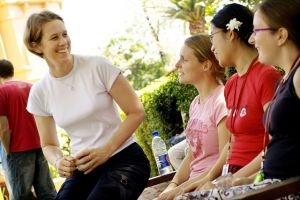
Suggestions

Choosing A Course Provider To Study A Cert 3 or Di…
With so many course providers available to choose from when you're looking to study a...

Cognitive Development for School Age
School age children are able to concentrate for a longer period of time in set...

Developmental Milestones From 2 Months Old To 5 Ye…
Developmental milestones are a set of functional skills or age-specific tasks that most children can...

- Childcare Articles
- Childcare Programming
- Student Articles
- Teaching Children
- Child Development
- Child Behaviour
- Parenting Articles
- Pregnancy Articles
- Child Health & Safety
- Games and Activities
- Art and Craft
- Rhymes and Songs
- Cooking Activities
- Cutting Worksheets
- Pre Writing Worksheets
- Alphabet Worksheets
- Number Worksheets
- Colours Worksheets
- Shapes Worksheets
- Vocabulary Worksheets
- Phonics Worksheets
- Reading Worksheets
- Writing Worksheets
- Math Worksheets
- English Worksheets
- Classroom Displays
- Colouring Pages
- All EYLF Templates
- Learning Stories
- Reflections
- Child Observations
- Child Portfolios
- Curriculum Plans
- Forms and Checklists
- FAQs and Troubleshoot
- Childcare News
- Childcare Events
- Forum Index
- Active Topics
- Childcare Forums
- Student Forums
- Parent Forums
- General Discussions
- General News
- Articles News
- Activities News
- Printables News
- EYLF Templates News
Subscription
- Subscription Plans
- Edit Profile
- Newsletter Settings
- Forum Settings
Appsessment
- Terms & Conditions
- Copyright & Disclaimer
- Privacy Policy
© 2009-2024 Aussie Childcare Network Pty Ltd. All Rights Reserved .

CHC50121 Diploma of Early Childhood Education and Care – Flexible Study Course
- Just left school?
- Flexible Study Courses
- EVET HSC Courses
- Traineeships NSW
- Traineeships QLD
- Traineeships ACT
- School-Based Traineeships and Apprenticeships & EVET
- Existing Worker Traineeship Care Sectors Pilot
- Funded Training NSW
- Funded Training QLD
- Training & Course Guide
- Fee Schedule
- Workshops NSW
- In-service Workshops
- Consultancy
- Flexible Study FAQs
- Traineeship/Funded Programs FAQs
- ECTARC Training Portal FAQs (Training and Assessment)
- ECTARC Student Management Portal FAQs (Student Records)
- Certificate, Transcript and Statement of Attainment FAQs
- Recognition of Prior Learning (RPL) and Credit Transfer (CT) FAQs
- Unique Student Identifier (USI) FAQs
- Policies & Handbooks
- Audit Results
- Student Wellbeing
- COVID-19 FAQs
- ECTARC Training Portal (Training and Assessment)
- ECTARC Student Management Portal (Student Records)
- Unit Purchasing Portal
CHC50121 Diploma of Early Childhood Education And Care
ECTARC offers the CHC50121 Diploma of Early Childhood Education and Care as a distance study qualification that can be studied from any location within Australia. ECTARC students come from regional, remote and metropolitan areas of every state. You can enrol at any time of the year and commence study as soon as you have completed the enrolment application process.
The CHC50121 Diploma of Early Childhood Education and Care is a nationally recognised qualification from the CHC Community Services Training Package.
Please note: To enrol in this course you are required to hold a CHC30113 or CHC30121 Certificate III in Early Childhood Education and Care.
For further information please read the ECTARC Student Information Handbook .
- online portal
- commence any day of the year from any location
- support every step of the way from our friendly team
- pay per unit as you progress through the course – no large upfront payment required
Units of competency
There are 15 units in total – 12 compulsory units and 3 elective units must be completed for this qualification.
Compulsory Units
- CHCECE041 Maintain a safe and healthy environment for children
- CHCPRP003 Reflect on and improve own professional practice
- CHCECE050 Work in partnership with children’s families
- CHCECE043 Nurture creativity in children
- CHCECE049 Embed environmental responsibility in service operations
- CHCECE042 Foster holistic early childhood learning, development and wellbeing
- CHCECE048 Plan and implement children’s education and care curriculum
- CHCECE047 Analyse information to inform children’s learning
- CHCECE044 Facilitate compliance in a children’s education and care service
- CHCECE045 Foster positive and respectful interactions and behaviour in children
- CHCECE046 Implement strategies for the inclusion of all children
- BSBTWK502 Manage team effectiveness
The following units are suggested electives based on consultation with the Education and Care sector. Where a student wishes to complete a different elective this may be discussed with their ECTARC Training and Development Officer.
- CHCMGT003 Lead the work team
- BSBHRM413 Support the learning and development of teams and individuals
- BSBSTR501 Establish innovative work environments
Please note:
For a full list of electives, please visit training.gov.au/Training/Details/CHC50121
Work placement requirements
Units within this qualification require students to complete work placement hours in a regulated early childhood education and care service within Australia. These hours may be completed as part of the students paid employment or as an unpaid practicum. An ECTARC Training and Development Officer will visit the workplace to assess students on the job and/or via video conferencing throughout the qualification.
Work placement requirements – 280 hours
- 40 hours – Birth-23 months – Babies
- 40 hours – 2-3 years – Toddlers
- 80 hours – 3-5 years – Preschool
- 40 hours – must include a child with additional needs (any age group)
- 80 hours – service management
Please note: Where you are employed in an education and care service that has the required ages/groups, these hours can be completed within your workplace. Where all required ages/groups are not available in your workplace these hours must be completed as a practicum at another regulated education and care service.
Certain units have work placement hours that are required to be completed before the unit is deemed competent. ECTARC Training and Development Officers can provide further information on this.
Criminal History Check
Most states and territories throughout Australia have regulatory and/or legislative requirements to protect the interests of children, by setting standards that include the requirement that ‘fit and proper’ persons be engaged in prescribed children’s services. This requirement applies equally to voluntary/work experience educators.
If you are enrolled in an education and care qualification and are not currently employed in the sector, you may be required to complete your states relevant checks prior to attending practicum. Contact ECTARC for further details.
How the course will be delivered
ECTARC students receive support from their personal ECTARC Training and Development Officer by phone, email, live webinar study sessions and assessment visits in the service. ECTARC students have access to the online ECTARC Training Portal where they can access learning materials and submit assessments. Practical assessments are conducted through observation in the workplace or via live video conferencing. Trainees will require access to a computer and the internet to undertake this course. Through the ECTARC Training Portal students can also:
– message their Training and Development Officer – upload forms and documents – view marked assessment tasks – students are notified as soon as an assignment is marked – access resources – additional information and documentation to support learning.
The ECTARC Training Portal is available through secure market leading technology and students find it very easy to use. The ECTARC Training Portal increases communications with students and ensures valuable information is available when required and provides access to their student records 24 hours a day, 7 days a week. If for some reason you do not have access to the internet, please contact our office to arrange an alternative study solution. Hard copies of learning materials can also be provided on request.
ECTARC guarantees that a Training and Development Officer is always available to speak to Monday to Friday 9am to 5pm and Tuesday evenings 5pm to 7pm.
Access to the Training Portal on completion
All students will have 14 days access to the ECTARC Training Portal after their course completion date to download content and any completed assessments for future reference. To download completed assessments, go to the relevant unit and click on the ASSIGNMENTS link to view your assessment tasks. Click on the assessment task you wish to copy and then right click on your mouse and choose the PRINT function. Change the destination from your printer to the PDF setting and click SAVE. If you have any questions regarding the saving of your online content, please call 02 4223 1111.
Assessment Submission Requirements
Fee for service students must submit at least one assessment task within a 6 month period or their enrolment will be made inactive. Where the student has not made attempt to contact ECTARC or submitted an assessment within 12 months the student will be withdrawn from the program.
Completion time
Enrolment period is 24 months. The average completion time is 12-18 months. This is self-paced and may vary depending on the learner’s previous skills and knowledge. Please note however, students must submit at least one assessment task within a 6-month period, or their enrolment will be made inactive. If they remain inactive for 12 months they will be withdrawn from the program. To recommence studies, student will need to complete the full enrolment process, and this will include the payment of enrolment fees.
Please see the ECTARC Fee Schedule for current fees.
Fee on enrolment application is $455 ($225 enrolment fee + $230 first unit).
Purchase one unit at a time as you progress through the qualification when you study at your own pace. No large full course fees required on enrolment.
The Enrolment Process
Courses can be commenced at any time of year.
What you need to read…
Students are required to read the following documentation and ECTARC policies prior to commencing the online Enrolment Application Form (this will be sent to you by email from ECTARC) to ensure they understand their rights and responsibilities before enrolling:
- Flexible Study Student Information Handbook
- ECTARC Training and Course Guide
- ECTARC Fee Schedule
What you need to get ready…
To complete the online enrolment application form, students need to:
- provide a valid Unique Student Identifier (USI) number.
- photo identification – driver’s licence, passport or proof of age card – take a photo of the document so it is ready to upload.
- evidence of citizenship – birth certificate, passport or green medicare card – take a photo of the document so it is ready to upload.
- give permission on the USI website for ECTARC to view their USI records (if applying for credit transfer only). Note: Where study was completed prior to 2015 or has not yet been reported, the student must provide a copy of their transcript for ECTARC to verify with the training provider.
Foundation Skills Questionnaire
Once you have submitted your online Enrolment Application Form you will be required to complete a Foundation Skills Questionnaire – ‘Foundation skills’ is the term that Australian Government agencies use to cover both Core Skills and Employability Skills. The five Core Skills are reading, writing, numeracy, oral communication, and learning; and the Employability Skills are teamwork, problem solving, initiative and enterprise, planning and organising, self-management, learning, and technology. ECTARC is required to identify needs of students throughout the enrolment application process and to ensure that the qualification is suitable for the student. After ECTARC receives the Enrolment Application Form, students will be provided access to the relevant Foundation Skills Questionnaire on the ECTARC Training Portal, which must be completed for the enrolment process to be finalised. ECTARC will contact the student to complete the oral component and discuss the outcomes of this questionnaire where required.
Unique Student Identifier - USI
It’s a regulatory requirement that if you’re studying nationally recognised training in Australia from 1 January 2015, you will be required to have a Unique Student Identifier (USI). Your USI links to an online account that contains all your training records and results (transcript) that you have completed from 1 January 2015 onwards. When applying for a job or enrolling in further study, you will often need to provide your training records and results (transcript). One of the main benefits of the USI is the ability to provide students with easy access to their training records and results (transcript) throughout their life. You can access your USI account online from your computer, tablet or smart phone anytime.
How do you get a USI?
Visit www.usi.gov.au/students/get-a-usi
Follow the steps here to get a USI. It is easy and quick to do. When you enrol online you will be required to enter your USI number.
For detailed information on the USI please visit the Australian Government’s Department of Industry website at visit www.usi.gov.au
Identification & Documentation required
Identification.
On enrolment you are required to upload a copy of photo identification (e.g driver’s licence, passport or proof of age card). Your ECTARC Training and Development Officer will need to sight the original document during your sign up which may occur in person or via webinar.
Previous Qualifications
The Australian Governments’ Standards for Registered Training Organisations (RTO’s) 2015 requires RTO’s, such as ECTARC, to authenticate VET qualifications, Statement of Attainments and transcripts that are provided by students for the purposes of granting credit transfer or Recognition of Prior Learning (RPL). To do this students must provide copies of qualifications, Statements of Attainments and/or transcripts to ECTARC and grant permission for ECTARC to view their records on the USI Portal at www.usi.gov.au
Where permission is not granted, ECTARC will contact the issuing RTO for verification.
Please note
ECTARC requires all documentation and relevant information before fully processing enrolments. Training will not commence until all documentation is received. We want to ensure that you get any credit transfer or RPL you are entitled to and that all regulatory requirements are met.
Recognition of Prior Learning - RPL and Credit Transfer
What is rpl.
RPL is an assessment process where candidates provide evidence of previous experience to demonstrate that they hold the required skills and knowledge of one or more units of competency. Previous experience may include (but is not limited to) paid or voluntary work, life experience, professional development or formal qualifications.
Can I apply for RPL?
RPL is suited to candidates who have demonstrated experience in an education and care service or equivalent. ECTARC recommends experience of a minimum of 5 years for those wishing to apply for RPL for a full qualification, in a variety of roles within an education and care service. This however, is very dependent on the individual experiences, so we encourage anyone wanting to learn more about RPL to contact ECTARC to discuss this further.
What evidence is required?
The candidate must provide sufficient evidence to demonstrate their competence against an entire unit of competency. For each unit, the following tasks provide the candidate with the opportunity to ensure that sufficient evidence can be gathered:
- Competency Conversation – An ECTARC Training and Development Officer (TDO) will discuss with the candidate their previous experiences to determine the extent of their skills and knowledge for each unit of competency. In addition to this, throughout the assessment process, and where appropriate, Competency Conversations may also be used to confirm competence where sufficient evidence has not been provided.
- Practical Assessment – Every unit of competency includes practical skills that must be demonstrated within a regulated education and care service within Australia. The candidate will be observed in the workplace to ensure that they are performing these skills to the standards required. In some cases, simulations may be conducted and evidence may be submitted by video to support the practical assessment.
- Portfolio – The candidate provides a portfolio of evidence of previous experiences, such as testimonials, copies of former qualifications, statements of participation in professional development, photographs and examples of their own work. This evidence is assessed and mapped by an ECTARC TDO to the requirements of a unit.

Credit Transfer
Credit Transfer is different to RPL in that the student already has completed a unit of competency in a previous qualification. To be granted Credit Transfer, ECTARC requires evidence of successful completion of the unit; this can be provided through the USI Portal or a certified copy of a transcript or Statement of Attainment. Once this evidence is verified, Credit Transfer will be granted.
Example: Tania has been working in a primary school as an education support worker for the past 6 years. Two years ago she completed the CHC40213 Certificate IV in Education Support, which included the unit CHCPRT001 Identify and respond to children and young people at risk. Over the past year, Tania has also been volunteering in the outside school hours care that is provided within the school and has decided she would like to complete the CHC50213 Diploma of School Age Education and Care. Tania enrols with ECTARC and has a competency conversation with an ECTARC TDO and an assessment plan is developed for her. Tania is granted a credit transfer for the unit CHCPRT001 Identify and respond to children and young people at risk and the TDO decides that she has sufficient experience to apply for RPL for a number of units relating to the development of children aged 5-12 years, developing relationships with children and supporting the behaviour of children. The remainder of units will be completed through the training and assessment pathway, where Tania will receive her learning materials and assessment tasks on the ECTARC Training Portal and will be supported by her ECTARC TDO to complete these.
If you think you may be eligible for RPL or credit transfer be sure to discuss this with ECTARC and/or provide relevant information and documentation when enrolling as it can save you time and/or money.
Career prospects
The CHC50121 Diploma of Early Childhood Education and Care qualification is for educators in early childhood education and care services who are responsible for planning, implementing and managing programs in accordance with approvals, quality rating systems and duty of care requirements.
The Education and Care Services National Regulations state under Section 126: Centre-based services – The qualification requirements for educators at centre-based services for children preschool age or under are – at least 50 per cent of the educators who are required to meet the relevant educator to child ratios for the service must have, or be actively working towards, at least an approved diploma level education and care qualification. Section 128: Family Day Care Co-ordinator qualifications state: A family day care co-ordinator must have an approved diploma level education and care qualification.
For more information on ECTARC’s policies such as complaints, refunds and privacy please click here.

If you are having technical difficulties using the online service please feel free to download the enrolment form here to complete and send to ECTARC at [email protected]
We use cookies on our website to support technical features that enhance your user experience, and to help us improve our website. By continuing to use this website, you accept our privacy policy .
Skip to Content (Press Enter)
- Student Login
- No-Cost Professional Certificates
- Call Us: 888-549-6755
- 888-559-6763
- Search site Search our site Search Now Close
- Request Info
Early Childhood Education (ECE)
Next program start date.
July 01, 2024
Finish in as few as
Learning includes.
- Campus Support and Resources
Early Childhood Education Diploma for Just Over $15K 2
You can earn your ECE Diploma for an estimated $15,030 to help make your goals more affordable. Gain new skills that help you promote a positive environment for young children and their families. A Diploma in Early Childhood Education (ECE) can help you lay the foundation for a career fostering healthy development in as few as 15 months. 1 With a schedule designed for working adults, you can save money by combining traditional online courses with self-directed assessments by showing that you already know the skills in a particular course and don’t need to take it. Our ECE Diploma prepares you to meet the academic requirements for the CDA ® credential application. 3 Already have your CDA? Save time and money by requesting a course waiver for up to 12 credits.
Our ECE programs do not prepare students for licensed teaching positions in any public school setting, but students will have the opportunity to help shape the futures of young children from birth to age six in a childcare or non-public school setting or leadership role.
Request Information
Take me to:
- Next Start Date: July 01, 2024
- Start Your Application
After this credential
What Will I Be Prepared to Do When I’m Done?
Apply for the cda.
This program's ECE courses are aligned to the standards of the Child Development Associate (CDA) credential. Students will be academically prepared during their courses to apply for the CDA credential.
Advance Your Education
Rasmussen University’s ladder curriculum allows you to easily transfer your credits toward an Associate’s degree in Early Childhood Education. Upon receiving your Associate's degree, you can transfer those credits toward an ECE Bachelor’s degree.
Pursue Potential Job Growth
According to the Bureau of Labor Statistics (BLS), the yearly projected job growth potential between 2020 and 2030 for Childcare Workers is 9%. 4 Enhanced skills and knowledge from Rasmussen University can help set you up for success in this growing field.
Take the Next Step—Talk to Us!
There are some errors in the form. Please correct the errors and submit again.
Request More Information
Request More Information About Our Early Childhood Education Program
Fill out the form to receive information about:
- Program Details and Applying for Classes
- Financial Aid and FAFSA (for those who qualify)
- Customized Support Services
- Detailed Program Plans
Step 1 of 3
Please enter your first name.
Please enter your last name.
Step 2 of 3
There is an error in email. Make sure your answer has:
- An "@" symbol
- A suffix such as ".com", ".edu", etc.
There is an error in phone number. Make sure your answer has:
- 10 digits with no dashes or spaces
- No country code (e.g. "1" for USA)
There is an error in ZIP code. Make sure your answer has only 5 digits.
Step 3 of 3
Please choose a school of study.
Please choose a program.
Please choose a degree.
Please choose your licensure status.
The program you have selected requires a nursing license. Please select another program or contact an Admissions Advisor (877.530.9600) for help.
The program you have selected is not available in your ZIP code. Please select another program or contact an Admissions Advisor (877.530.9600) for help.
Rasmussen University is not enrolling students in your state at this time.
By submitting this form by clicking “Submit”, you are providing your signature and your express written consent, and hereby agree to receive information via electronic means, which may include a telephone system, an automated dialing system, a recorded message device, soundboard technology, over-the-top messaging, text or media messaging, voice messages, and/or email about upcoming courses, recruitment events, newsletters, and other resources from Rasmussen University. This consent is not a condition of enrollment or purchase. You may withdraw your consent at any time. Please refer to our privacy policy , terms , or contact us for more details. This site is protected by reCAPTCHA and the Google Privacy Policy and Terms of Service apply.
What Skills Will I Gain?
Choose between two specializations— Special Needs and Child Development —to develop your skills in your particular area of interest. Both paths emphasize working with diverse families and dual language development while also exploring unique aspects of early childhood education.
Child Development Foundations
Utilize your knowledge of developmentally appropriate practice as it relates to child development, individual needs and using interpersonal skills and communication within the early childhood education setting or program.
Promote Safe Educational Environments
Implement strategies for health policies, controlling disease, establishing proper nutrition and responding to children's special health concerns.
Techniques for Exceptional Children
Special Needs Specialization
Create an inclusive environment for exceptional learners, including children with diagnosed and undiagnosed special needs and English Language Learners, and bring together fellow caregivers, educators and family members critical to supporting the child.
Active Parent Education and Support
- Child Development Specialization
Use your knowledge and skills to help families manage resources through various problem-solving methods.

Sample Courses
What Types of Classes Will I Take?
Dynamics of the family.
Focuses on the dynamics of the family and the family’s influence on the growth and development of children. The history of family systems, child rearing and parenting styles will be discussed. Explores the issues that families of today face.
Curriculum and Instruction for Children with Special Needs
- Special Needs Specialization
Explores how to adapt developmentally appropriate curriculum to support the development of children with special needs. Studies strategies for effective partnering with other professionals and parents to ensure the achievement of developmental goals.
Language and Literacy Acquisition
Examines how infant, toddler, preschool and school-aged English Language Learners acquire language and literacy. Studies early childhood programs that support children’s home languages and explores how to create an environment that sustains English Language Learners.
18 Courses to Complete
70 Credit Hours
- View Full Course Listing
- Contact An Admissions Advisor
Estimate Your Tuition
Rasmussen University is committed to making education more affordable for all students. Our tuition estimating tool can help you visualize the cost of your degree and see what savings opportunities are available to help you achieve it.
Rasmussen University believes in helping you make your education as affordable as possible.
Our interactive tuition estimator is designed to help you discover how much you could save on a degree from Rasmussen University.
Simply enter your ZIP code, select the program and credential you're interested in, and click “next”.
Right away, you can see the total estimated cost of your selected degree.
As you engage with the tool, you may see this number start to go down.
You also have the option to see how attending full-time or part-time could impact your tuition—and what your tuition estimate looks like, broken down by quarter.
The tuition estimator walks you through a number of ways you could reduce your overall tuition.
Click the tabs or the “back” and “next” buttons to move through the tool.
Within each tab, answer the question shown as accurately as you can, by interacting with the slider, select menu or radio buttons shown.
You might not feel totally confident in all of your answers. That's okay. This tool is just generating an estimate of how much your degree might cost.
The last tab of the tool shows you your results, including how much you could potentially save on your Rasmussen degree.
Remember, the numbers shown here are just estimates, and the true cost of your degree will vary.
Talk with an admissions advisor for more information about how to make your Rasmussen degree as affordable as possible.
Additional Ways to Save
While we aim to reduce your tuition through our credit transfer policies and other ways to help you save on your education—we encourage you to seek outside scholarships as well. You can also receive course waivers if you have earned specific professional credentials:
Florida Child Care Professionals Credential (FCCPC) Florida Early Childhood Professional Credential (ECPC) Florida Child Care Apprenticeship Credential (CCAC) Wisconsin Infant and Toddler Credential Wisconsin Preschool Credential Wisconsin Administration Credential Wisconsin Leadership Credential AIM4Excellence Director Credential CDA Credential awarded by the Council for Professional Recognition For more information, please view the School of Education Waivers from the course waiver section in the course catalog .
MN T.E.A.C.H. Early Childhood Scholarship Program
Wi t.e.a.c.h. early childhood scholarship program, fl t.e.a.c.h. early childhood scholarship program, il gateways scholarship program.
The Gateways Scholarship Program will pay a portion of tuition for eligible professionals working in early care and education or school-age programs who want to earn college credit, credentials or degrees.
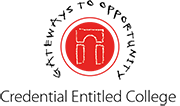
What Should I Know Before I Enroll?
Entrance requirements.
There's no application fee and you can get started sooner with 8 start dates throughout the year. Entrance requirements at the Rasmussen University School of Education vary depending on the program. We do not require enrolling students to submit standardized test scores; however, every entrant must have at least a high school diploma or the equivalent.
Talk to an admissions advisor
Transfer Student
We believe in giving credit where it’s due. Prospective students can transfer credits and receive course waivers in this ECE program. For example, if you already have your CDA credential, you may be eligible to transfer up to 12 credits toward your certificate. Talk to an admissions advisor today or explore our Transfer Policy page to review our seamless credit policies designed to maximize credits, potentially save money and expedite graduation.
Visit our Transfer Policy page
Help Paying for College
Higher education should be a manageable investment. Talk to an admissions advisor and learn how these programs can make it more affordable with self-directed assessments, credit for prior learning, loans and grants, scholarship opportunities, corporate grants and military discounts for those who qualify.
Learn more about other ways to save
Class Locations
Where Can I Find an ECE Degree Near Me?
At Rasmussen University, we want our courses to be available on your schedule, not the other way around. Select programs are available for enrollment through a specific campus and nationally online, but students complete the courses online and are able to utilize online and on-campus support and resources. See below to find out where you can find an online Early Childhood Education program near you.
Online Learning
While students will be completing the classes online, they can enroll online or through their nearest campus. Select a state to see what specific campuses may be available for enrollment.
Florida Campuses
This is an online program, but students can enroll at one of these campuses.

Central Pasco Campus
Explore This Campus

Fort Myers Campus

North Orlando Campus

Ocala Campus

Tampa/Brandon Campus
Illinois campuses.
*This program is offered online in Illinois.

Aurora/Naperville Campus

Mokena/Tinley Park Campus

Rockford Campus

Romeoville/Joliet Campus
Kansas campuses.

Kansas City/Overland Park Campus

Topeka Campus
Minnesota campuses.

Bloomington Campus

Eagan Campus

Hennepin/Anoka Campus

Mankato Campus

Moorhead Campus

St. Cloud Campus
North dakota campuses.

Fargo Campus
Wisconsin campuses.

Green Bay Campus

Wausau Campus
Still have questions connect with an admissions advisor.
- Completion time is dependent on transfer credits accepted and the number of courses completed each term.
- Tuition for the Early Childhood Education (ECE) Diploma is $210 per credit, for new students only. A student who withdraws and re-enrolls will be required to pay the tuition price offered at the time of their re-enrollment. Students who receive the tuition price of $210 per credit cannot use any additional Rasmussen University discounts, grants and/or scholarships. If a student needs to retake one or more courses in the degree program, the total cost of the program will exceed $15,030. Program cost breakdown: $210 per credit x 70 credits = $14,700 + $330 book fees = $15,030 estimated program cost . Program availability varies by campus and state; please see the Rasmussen University Catalog for details. Learn more about the financial aid cost of attendance (COA).
- CDA and Child Development Associate are registered trademarks of the Council for Professional Recognition.
- Bureau of Labor Statistics, U.S. Department of Labor, Occupational Outlook Handbook, [career information accessed July 2022] www.bls.gov/ooh/ . Employment conditions in your area may vary.
CHC50121 Diploma of Early Childhood Education and Care
No tuition fees for eligible students

Gain the skills and qualifications to work confidently and effectively in early childhood with a Diploma of Early Childhood Education and Care CHC50121 at Victoria University (VU).
Progress your qualifications with this early childhood diploma that gives you guaranteed entry into a bachelor degree at VU.
Build on your passion for play-based learning and gain expertise in providing activities and care for children from birth to six years old. Make a real difference to children’s lives by helping them to achieve important developmental outcomes – and have fun along the way.
In addition to five work placements, this course includes first aid training and lessons in:
- childhood development (aesthetic, creative, physical)
- planning for children with additional needs
- networking and family partnerships
- children’s health and safety.
You can study this course after completing your Certificate III in Early Childhood Education and Care ( CHC30121 or CHC30113).
Join an information session
There's never been a better time to study early childhood education. Join an information session to find out more about the course structure, industry connections, placement opportunities and pathways to further study.
This qualification reflects the role of educators in early childhood education and care who work in regulated children’s education and care services in Australia. Educators at this level are responsible for designing and implementing curriculum that meets the requirements of an approved learning framework and for maintaining compliance in other areas of service operations. They use specialised knowledge and analyse and apply theoretical concepts to diverse work situations. They may have responsibility for supervision of volunteers or other educators. Early childhood educators work in long day care centres, family day care, pre-schools or kindergartens. Under the Education and Care Services National Law (2011) the Australian Children’s Education and Care Quality Authority (ACECQA) publishes lists of approved early childhood education and care qualifications and information regarding regulatory requirements here: www.acecqa.gov.au
If you choose to continue onto further study, your path to a bachelor degree will be seamless at VU. After you complete this course, enjoy guaranteed entry into our:
- Bachelor of Early Childhood Education or
- Bachelor of Early Childhood Education and Leadership .
In some cases you may even receive credit for your prior learning.
Practise your skills in a simulated early childhood environment in the early childhood practical classrooms on-campus in Werribee, St Albans, Footscray, or Sunshine.
At VU, you’ll collaborate with your classmates to work through scenarios and debrief with your expert teachers to improve your skills.
Benefit from our close ties to the community, with the purpose-built Victoria University Children’s Centre on our Werribee and Footscray Nicholson Campuses, providing care and education with a varied indoor and outdoor play-based program.
A key component of your course is three work placements, in which you’ll work alongside experienced professionals to consolidate your skills and put theory into practice.
As a VU student, you’ll benefit from our extensive partner network, which includes schools and community and government organisations, particularly in Melbourne’s north and west. Your placements may even lead to paid employment.
Your teachers are experts in their field and have valuable industry contacts. You’ll also get to hear from guest speakers, and your assessments will be scenario-based with links to the real world.
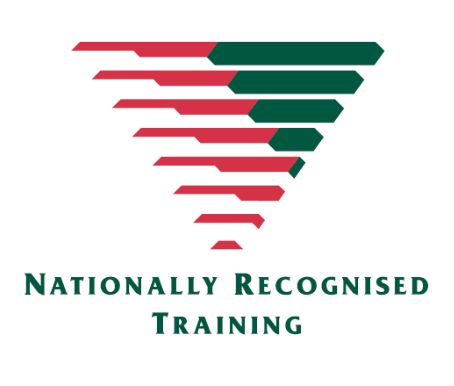
Entry requirements
When assessing your application, we consider your education, work experience, current skills and personal attributes (where relevant).
Applicants for this course will need to meet the entry criteria outlined below. If you don’t meet the entry criteria, you may be able to gain entry by first completing a different course. We call this a ‘pathway’.
You may also be eligible for ‘Recognition of Prior Learning’, which lets you finish your course more quickly when you have gained some of the skills required from past study or work experience.
Entry criteria
Entry to this qualification is open to individuals who hold a: * CHC30121 Certificate III in Early Childhood Education and Care; or * CHC30113 Certificate III in Early Childhood Education and Care. Standard applicants must complete to determine suitability: * Pre-training Review (PTR) * Literacy and numeracy assessment. * Students will also be required to demonstrate they have the capacity to work with children and families in the highly demanding field of early childhood as set out by the Australian Children’s Education and Care Quality Authority (ACECQA) and the Education and Care Services National Regulations by participating in an interview. This may be conducted individually or as a group, at the discretion of Victoria University. Further information can be found at: https://www.acecqa.gov.au/ Traineeship applicants must complete to determine suitability: * Pre-training Review (PTR) * Literacy and numeracy assessment * must be employed as an apprentice * must have an active Epsilon number before commencing the course. * Students will also be required to demonstrate they have the capacity to work with children and families in the highly demanding field of early childhood as set out by the Australian Children’s Education and Care Quality Authority (ACECQA) and the Education and Care Services National Regulations by participating in an interview. This may be conducted individually or as a group, at the discretion of Victoria University. Further information can be found at: https://www.acecqa.gov.au/ Note, that part-time or Traineeship students who are employed in the workplace may have reduced placement requirements to provide. Please discuss this with the Course Coordinator or at the time of application. Practical Placement: For employment and practical placement purposes, this vocational sector typically requires: * a current and satisfactory Police Record Check * Working with Children Check * Immunisation The following are suggested sites you could visit to obtain these checks: * Police Record Check - http://www.police.vic.gov.au/content.asp?Document_ID=274 * Working with Children Check - http://www.workingwithchildren.vic.gov.au/ Failure to provide the required documents in the timeframe specified by the Course Coordinator means you will be unable to undertake practical placement in a workplace and therefore not eligible to progress in this course. It is an industry expectation that those engaging with young children in an early childhood setting are fully immunised. Any students electing not to disclose their immunisation status, conscientious object to vaccinations or have a contraindication, must contact the placement coordinator to discuss the impact this may have on their capacity to undertake placement. Incomplete immunisation may impact your course progression due to a lack of appropriate placement opportunities. Information about the immunisations can be found online at https://www.health.gov.au/health-topics/immunisation
Meeting the minimum admission requirements does not guarantee you entry into this course.
Some courses receive more applications than the number of places available. In this situation we will also assess your education, work and other relevant experience.
Special entry programs
Special admission programs.
If you are from a disadvantaged or underrepresented social, economic or cultural background, you may be eligible for one of our special admission programs. These programs are designed to help you access education more easily.
Learn more about special entry programs
VU Early Entry
If you're currently in Year 11 or 12, our exclusive VU Early Entry program comes with a Conditional Offer to the course of your choosing*, a personalised course plan, special events, exclusive discounts and access to one-on-one course advice.
*Conditions apply.
Learn more about VU Early Entry
Credit & Entry pathways into this course
If you don't currently have the English, maths, or other skills needed to complete this course, our English and Preparation courses may help you transition into tertiary learning.
You’ll find information about any pathways to higher qualifications that may be available to you after completing this course under the ‘careers’ section of this page.
Find out more about pathways.
You may be able to complete your qualification sooner through formal recognition of your existing skills. This is known as Recognition of Prior Learning (RPL).
To receive RPL, we assess your previous work, education and life experiences against recognised qualifications. Applications for RPL can be made prior to enrolling.
Call us on 1300 TAFE VP (1300 823 387) to discuss RPL options with the course manager.
If the RPL application is successful, you will be given credits towards your course (meaning you may not have to complete all the units to gain this qualification). Use our calculator to find out what credits you may be eligible for.
calculate your credit
Course structure
To be awarded the CHC50121 Diploma of Early Childhood Education and Care, 15 units must be completed consisting of:
- 12 core units
- 3 elective units, of which
- 2 must be selected from the elective units listed below
- up to 1 unit may be selected from any endorsed training package or accredited course relevant to the work outcome.
ELECTIVE UNITS
Indicative course timetable information : Domestic full-time students will study four days per week (four days of workshop and scheduled e-learning tasks), 9.30am – 3.30pm*
*Subject to change
Fees & scholarships
TAFE fees vary, depending on how much the government contributes towards course costs (if anything).
Read below to find out about the fee ‘type’, the estimated yearly tuition costs for this course, and the financial support on offer.
Eligible students won’t be required to pay tuition fees for this course.
Free TAFE courses align with skills and jobs that are in high demand in from Victorian employers.
Skills First (subsidised) indicative fees
The Skills First government contribution in 2024 towards this course is $9,209.20 (trainee / non-trainee). If eligible , you will pay:
- Tuition : $6,955.20* (course eligible for Free TAFE)
- Materials : $262.50 – $345
- Student Services and Amenities Fee (SSAF) : maximum per year $175.50**
*A concession rate of 20% of the standard Skills First subsidised tuition fee is available if you are eligible for a concession. Learn more about concessions .
**May be subject to change.
Full-fee place total indicative fees
2024 full-fee place : $16,100
Scholarships
Every year, we award hundreds of scholarships, worth millions of dollars combined, to students at all levels of study. Our scholarships support marginalised groups and reward high achievers for their hard work and perseverance.
Whether you are struggling with costs or circumstance, or seeking recognition for your accomplishments, apply for a scholarship with us – so that we can help you to thrive at VU and beyond.
Learn more about scholarships
With the introduction of three-year-old kindergarten, jobs in early childhood are booming in Victoria. With the introduction of three-year-old kindergarten, jobs in early childhood are booming in Victoria.
Take advantage of the opportunity to become one of the more than 11,000 new early childhood teachers and educators the Victorian Government is estimating we will need over the next decade.
With a Diploma of Early Childhood Education and Care, you could advance to roles such as:
- early childhood coordinator
- family-daycare coordinator
- team leader or room leader in a service
- early-childhood educator
- playgroup coordinator
- assistant director of early childhood services
- early-childhood educator – team leader
- reliever in early-childhood programs
Visit the Jobs and Skills Australia website to see the employment growth and average earnings for child carers .
FURTHER STUDIES (PATHWAYS)
To further expand your career options, you may decide to continue study with us in a higher or related course. 'Pathways' allow you to progress to a higher qualification while recognising your completed study. Often this means you can complete your next qualification more quickly.
Once you have completed this course, you will be guaranteed entry into the following course(s) - and in some cases receive credit points for your study.
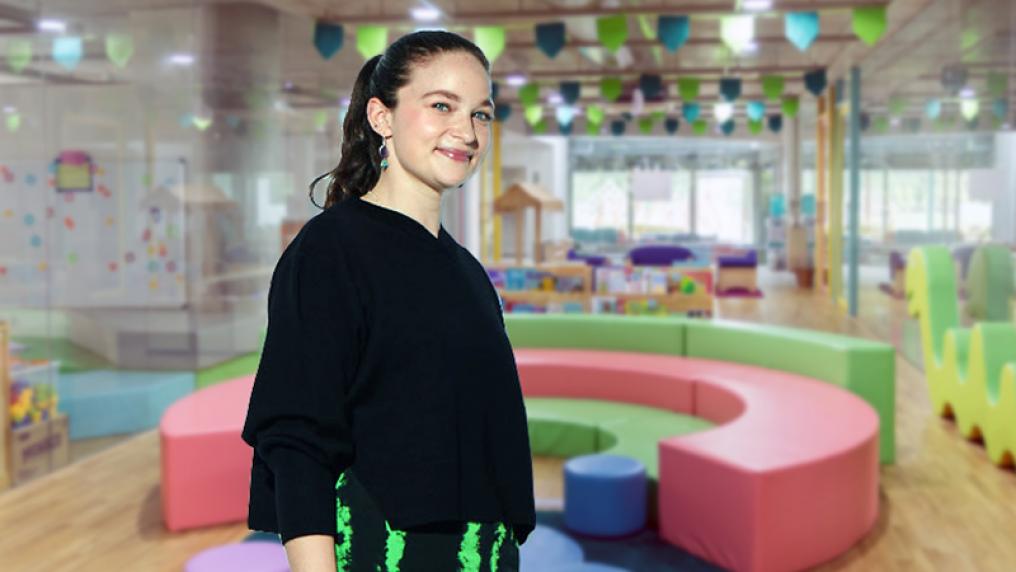
Related courses

Search for a course
- Student Email
- Student Portal
- Staff Email
- Staff Portal
- All courses
- Accredited courses
- Apprenticeships & traineeships
- International courses
- Short courses
- Study areas
- School-Based Apprentice and Traineeship (SBAT)
- VETDSS courses
- Wyndham courses
- Information Sessions
How to apply
- Student wellbeing and support
- Fees & payments
- Pathways to University
- Training facilities
- Student residence
- First Peoples education support
- Recognition of Prior Learning & Credit Transfers
- Disability Transition for School Students
- VET Delivered to Secondary Students
- Supported Learning Programs
- First Peoples Programs
- The Geelong Tech School
- Workforce training
- Industry collaborations
- Work with our students
- Skilling the Bay
- The Gordon Alumni Program
- Pilot Projects
- Capability Statements
- Skills & Jobs Centre
- Small Business short courses
- Why study at The Gordon?
- Accommodation
- Helpful information
- International guides & brochures
- International agents
- Pearson Test Centre
- Contact The Gordon International team
CHC50121 Diploma of Early Childhood Education and Care
Free TAFE Early Childhood Education
Course description
If you are ready to take the next step and become a room leader, this course is for you. You will gain the skills and qualifications to confidently and effectively work in the early education sector, allowing you to positively impact our future generations. The program will enable you to develop skills to design, implement and evaluate early childhood education programs whilst caring for and supporting children’s learning in their most formative years.
All applicants must hold the following qualification - CHC30113/CHC30121 – Certificate III in Early Childhood Education and Care.
Work placement/industry experience.
A mandatory course component is a practical placement in a registered education and care service. Minimum 280 hours of work placement. (organised by The Gordon). Placement is not paid work and students will not receive payment for undertaking practical placement. You must have a valid Working with Children Check. Some centres may require you to have immunity to COVID-19 and whooping cough. You may be required to travel up to an hour to attend placement in regional or metropolitan centres.
Possible career outcomes
- Early childhood educator
- Out-of-school hours educator or coordinator
- Family daycare operator
- Team, group or program leader
- Educational leader
- Early childhood service director or coordinator
Applications & attendance
- View the application requirements to find out what documents you will need to complete your application.
- Follow our instructions for how to apply for a course .
- Apply online by selecting an intake from the Applications & attendance table below.
If you need help, visit Customer Service or request application support via email. Submission of an application does not guarantee a place in the course.
Apprenticeship and traineeship applicants
To become an apprentice or trainee, you will first need to find an employer willing to employ you. An Australian Apprenticeship Support Network Provider can assist you with this and will also start your application and enrolment process. Find a local provider here
Are you ready to start an aged care traineeship or want to find out more?
Students may need to complete some self-paced learning and assessment activities outside class time. This will be different for each course and will depend on a student’s level of skill and experience.
Class days and times in the above table are indicative. Prior to course commencement, changes may be necessary. Follow the link for more information on Attendance mode definitions. When you submit your application, please make sure you answer all the questions. Only successful applicants with complete applications will receive an offer. We issue offers as soon as possible. Follow the link for more information on Offer timing.
Many courses have limited places and high demand. We may close an intake before the date above. We recommend you apply early. If student numbers are insufficient we may cancel an intake or a course. An application does not guarantee a place in this course.
Additional attendance information
This is an online course, however it is a mandatory requirement for students to attend onsite face to face sessions once a month.
- CHC30121 Certificate III in Early Childhood Education and Care
- CHC30113 Certificate III in Early Childhood Education and Care
- You must reside in Victoria to access Victorian Government Subsidised Fees and any incentive such as Free TAFE. Full fees apply to all non-Victorian residents.
Apprenticeship and traineeship requirements
Apprenticeship and traineeship applicants must be currently employed under a training contract and referred by their employer.
Pre-training review
Each student must complete a pre-training review as part of their application. The outcome of your pre-training review assists our teachers and trainers to better understand your capabilities prior to training and enables you to be matched to the right program. Your literacy and numeracy skills will be evaluated and you may be required to undertake a separate assessment. Follow this link for more information about literacy and numeracy skills .
In order to prepare for your LLN, you may wish to attempt some practise tests in which you will find similar questions (with solutions too). These practice tests are not VSL approved but may be similar in question type and level of difficulty to what may be asked in the VSL approved LLN. Click here for practice tests . Please note, the VSL approved LLN cannot be resat within 3 months of undertaking it.
Personal Learning Requirements
There are personal learning requirements for each qualification at The Gordon. These are essential personal capabilities and skills required to successfully complete the course and be ready to work in the industry.
Please review the requirements here and consider any challenges you may have in meeting them. When applying for your course, please let us know what support you may need.
Selection mode
Please note that the listed electives are delivered by The Gordon but you may not need to complete all of these units to successfully complete this qualification. If you have previously completed any of the units of competency relevant to this course, you may be eligible for Credit Transfer (CT). Any previous relevant experience may qualify you for Recognition of Prior Learning (RPL). Find out more about CT or RPL here .
Assessment is based on:
- Hands-on work
- Workplace tasks
- Written assignments
- Industry placement
- Team projects
This course is eligible for Free TAFE!
Eligible Victorian students who elect to use their Free TAFE opportunity will not incur any tuition fees. Material and resources fees still apply. Follow the link for further information and to check the eligibility criteria.
Add the costs below to your relevant tuition fee
All fees and charges are correct at time of publication but may change without notice. The student tuition fees are indicative only. Additional fees may apply. Where GST is applicable to any courses or materials, the fee displayed is inclusive of the GST.
Which fee will I pay?
Your fees will be charged according to your eligibility for government funding. For more information, visit our Fees & Payments pages.
Fee help and student loans
VET Student Loans are available for eligible students for tuition fees ONLY. The current years maximum VET Student Loan Course Cap is $18,097
Payment plans may be available for students who are not eligible for a VET Student Loan.
VET Student Loan
To be eligible to apply for a VET Student Loan, applicants will be required to:
- undertake an independent assessment test to ensure they possess Level 3 in reading and numeracy, or
- provide their Year 12 certificate, or
- provide evidence of completion of a Certificate IV or above.
Many Gordon courses offer pathways to higher qualifications within The Gordon and in some cases, to university degrees. Your Gordon course may provide credit points which could reduce further study time. Follow the link to find more information about pathways , or contact Customer Service.
Date published: 21/06/2024 4:00:48 PM CHC50121-Diploma-of-Early-Childhood-Education-and-Care
- The Gordon Gallery
- The Studio - Hair & Beauty
- Customer Service
- Complaints & feedback
- School Resources
Gordon Affiliates
- The Culinary Collective
- Skills and Jobs Centre
- Organisational Information
- 100 years of International Education
- Careers @ The Gordon
- Agent Agreements
- Let us introduce ourselves
- Site Error Reports
- Copyright notice
- Terms of use
- Information Privacy Policy
Our training is delivered with Victorian and Commonwealth Government funding. | Authorised by the Victorian Government, Melbourne.
ABN: 27 241 053 246. | TOID: 3044 | CRICOS Provider No. 00011G | © Gordon Institute of TAFE 2014 The Gordon acknowledges Aboriginal and Torres Strait Islander people as the traditional custodians of the land on which we work, study and do business. The Gordon is an inclusive workplace and welcomes people of any age, sex, culture, religion, gender, sexuality and ability.
- NAEYC Login
- Member Profile
- Hello Community
- Accreditation Portal
Online Learning
- Online Store
Popular Searches: DAP ; Coping with COVID-19 ; E-books ; Anti-Bias Education ; Online Store

You are here
NAEYC’s online professional development introduces early childhood educators to core ideas from NAEYC’s position statements, books, journals, and more. Designed with busy educators in mind, our online resources provide self-paced, interactive learning that connects professional knowledge to daily practice through practical strategies that bolster best instructional approaches.
Get started today! Explore available courses below and learn about group discounts .
Already completed your purchase? Visit the NAEYC Learning Lab to log-in and begin your course!
Please Note: NAEYC online courses can only be purchased on the naeyc.org website. NAEYC is not currently offering free courses with the U.S. Department of Education or advertising these courses on Facebook. If you have received these fake ads on your feed, please report them as spam.
New to the NAEYC Learning Lab!
Context: understanding the child, educator, and program (on demand).
Join DAP thought leaders Susan Friedman and Lorena Mancilla as we focus on one of the 3 Core Considerations: Context.
DAP & The Nine Principles of Child Development and Learning (On Demand)
Hear from DAP thought leader, Dr. Iheoma Iruka as she shares her perspective on taking an equity-focused approach to understand and support child development.
DAP & Teacher Decision Making (On Demand)
Hear from DAP thought leaders, Sue Bredekamp and Barbara Willer, as they reflect on the importance of the core considerations to teacher decision making.
Emergent Curriculum and the Cycle of Inquiry (On Demand)
NAEYC’s Emergent Curriculum and the Cycle of Inquiry Approach course, is the first step on your journey to guiding children through an emergent curriculum.
Rethinking Circle Time: Effective Communication with Young Children (On Demand)
Rethinking Circle Time provides clear communication strategies, from a behavioral psychology perspective, to help teachers succeed and have a stress-free classroom.
Choose Your Topic!
Ampliando el aprendizaje de los niños a través del juego guiado (a pedido).
En este taller de 1 hora aprenderemos cómo el juego guiada amplía el pensamiento de los niños y las oportunidades de aprendizaje. También describiremos cómo los adultos guían el juego de los niños aplicando tres estrategias. Este módulo se presentó en el Instituto Virtual de NAEYC.
Classroom-Based Assessment (On Demand)
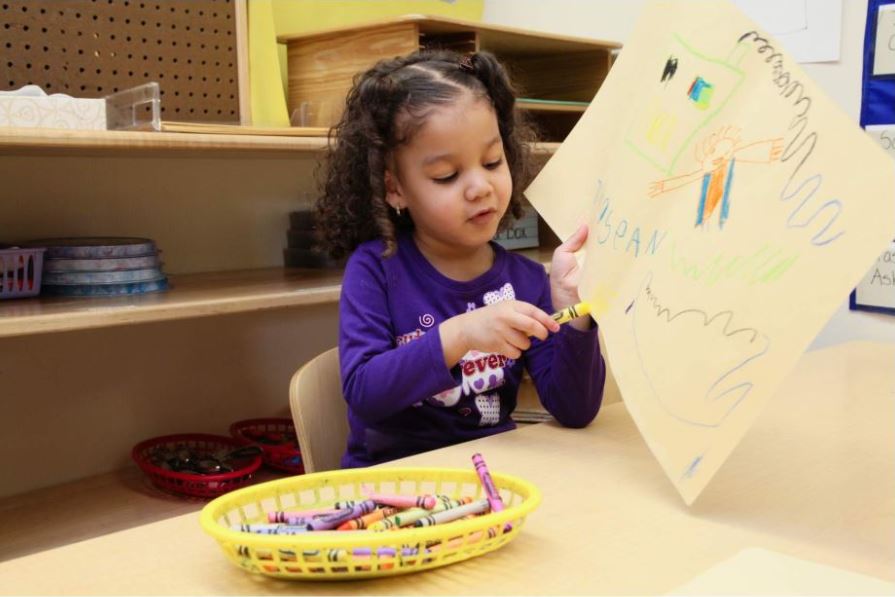
The course is divided into three, 1-hour online modules that help to answer basic questions teachers have about classroom-based assessment, such as:
- What do preschool teachers need to know about assessment?
- When & how should preschool teachers collect work samples & photos as evidence of learning?
- How can teachers use assessment to guide decisions about curriculum & instruction?
Culturally Appropriate Positive Guidance (On Demand)

This 1-hour online module covers:
- Classroom examples and practical strategies to enhance awareness of how cultural practices are deeply embedded in children and families behavior.
- A deeper understanding of culture in family practices (things families think, say, and do)
- Strategies to be more responsive to the diverse families and children in our programs
Developmentally Appropriate Practice: What do higher education faculty need to know? (On Demand)
- Understand the key revisions to the DAP Position Statement
- Hear recommendations from higher education faculty
Developmentally Appropriate Practice: What do professional development providers need to know? (On Demand)
- Hear recommendations for PD Providers from thought leaders in the field
Developmentally Appropriate Practice: What Do Program Leaders Need to Know? (On Demand)
Listen as early childhood education experts Sue Bredekamp, PhD, Marie Masterson, PhD, and Iheoma Iruka, PhD reflect on NAEYC’s newly revised Developmentally Appropriate Practice (DAP) position statement.
Developmentally Appropriate Practice: What do teachers need to know? (On Demand)
- Understand the key revisions to the DAP Position Statement
- Hear how two teachers are implementing DAP in their classrooms
Each & Every Child: Teaching Preschool with an Equity Lens (Facilitated)
Registration has closed.
Interested in participating in future facilitated events like this? Let us know here
This faciliated online mini-course explores the six parts of the book, Each and Every Child: Teaching Preschool with an Equity Lens and includes 4 hours of self-paced learning and 3 hours of face-to-face video meetings with a facilitator over the course of 4 weeks:
- October 5th, 2020 at 5:00 PM Eastern
- October 19th, 2020 at 5:00 PM Eastern
- November 2nd, 2020 at 5:00 PM Eastern
Each & Every Child: Teaching Preschool with an Equity Lens (On Demand)

The 4 hours of self-paced learning include:
- Key practices in combating implicit bias
- Strategies and tips for how to support the learning and development of each and every child
- Examples of intentional play opportunities and guided instructional supports
HOT: Big Questions (On Demand)

This online learning experience includes a webinar segment by authors Janis Strasser and Lisa Mufson Bresson, and discusses real classroom scenarios, the different types of questions that engage children, and how they can be used in different activities throughout the day.
HOT: Creativity (On Demand)

HOT Creativity is a self-paced, 1-hour online module that provides preschool teachers with innovative ideas to incorporate the following aspects into their classroom:
- Open-ended art activities
- Higher order thinking skills and "big" questions
- Active, intentional technology engagement
HOT: Tinkering (On Demand)

HOT Tinkering is a self-paced module which explores concepts of making, tinkering and engineering for preschoolers while connecting higher order thinking skills to everyday interactions.
This 1-hour online module provides:
- Teacher facilitation strategies
- An in-depth look at ways to scaffold higher order thinking with young children
- Tips for implementing a tinker station in your classrooms
Higher Order Thinking Bundle (On Demand)
This collection of higher-order thinking modules brings together three of NAEYC’s popular modules into one convenient package:
- HOT: Big Questions,
- HOT: Creativity, and
- HOT: Tinkering.
The bundle also includes supplemental articles to reinforce your learning and a Message in a Backpack™ handout for families to encourage curiosity at home.
Resource Library on Trauma and Young Children
This resource library explores key concepts of trauma and sensitive strategies for working with young children who have experienced trauma.
Earn up to 5.25 hours of training exploring the following resources:
- An interactive module that includes a presentation from author Sarah Erdman
- The E-Book: Trauma & Young Children: Teaching Strategies to Support and Empower
- A digital copy of Young Children , July 2020 edition " From Good Guidance to Trauma-Informed Care"
- 3 bonus presentations on trauma
Self-Study: 1, 2, 3! (On Demand)
NAEYC is the world’s preeminent organization dedicated to early childhood education. Hear from NAEYC’s professional development team about the self-study process to improve program quality.
Serious Fun! (On Demand)

This online learning experiences offers guidance on how to:
- interact with children during play
- carefully evaluate teaching strategies,
- incorporate meaningful play opportunities into rigorous and developmentally appropriate practices that can result in deep, rich learning for children.
Strengthening Relationships With Families (On Demand)
This online module will introduce the 6 principles of family engagement and practical strategies for strengthening program-family relationships.
The Path to Quality Early Learning Services (On Demand)
The Path to Quality Early Learning Services is a self-paced, 1-hour online module designed for early childhood program leaders. This online module provides an overview of:
- NAEYC's history, mission, and goals
- The foundations of developmentally appropriate practice, and
- NAEYC's Early Learning Program Standards, which provide a framework to achieving a high-quality program
This module includes a PDF of Teaching Young Children , “Defining and Recognizing High-Quality Early Learning Programs: NAEYC's 10 Accreditation Standards.”

Bulk Purchases: Online Learning

Premium Member Benefit: Online Learning
Professional development.
Child Care Professional
If you want a career that allows you to work with children to help them grow and learn, our online Child Care Professional Career Diploma Program can help you prepare to take the next steps toward your dream job today. Through flexible, online classes, you'll build the skills and knowledge to work with children in a variety of settings while fulfilling the education requirements needed to earn your Child Development Associate (CDA) Credential.
- Our online Child Care Classes can help students prepare for a variety of child care careers such as teacher aide, preschool aide, in-home child care provider, or nanny.
- Your child care course will fulfill the 120-hour educational component necessary to obtain a CDA. Earning a CDA can often be a requirement for work or promotion in licensed child care facilities.
- Choose between two specializations, family child care or center-based care, to tailor your lessons to prepare you to work in the setting you prefer.
- Penn Foster is an official partner of Bright Horizons Family Solutions and The Learning Care Group, which means you may be able to complete your optional work experience component in a facility near you.
- Our online programs are flexible enough for you to finish them at a pace that works for you, based on how much time you can dedicate to your coursework each week.
Save up to $200 Ends 6/25/2024
Cost of Program
$1,199 Save $200
$69/month, Start for as low as $20
1-800-275-4410 (9AM - 9PM ET)

- How to supervise and monitor the health and safety of children in your care.
- How to organize developmentally appropriate activities and implement curricula that support healthy social and emotional development, along with healthy growth and development in areas including math, science, social studies, art, music, literacy, and language.
- How to recognize signs of social, emotional, physical or developmental delay in children, including the range of development disabilities among young children. Students will understand how to plan for children with special needs and communicate those issues to the proper authorities, including teachers and parents.
- How to keep records of children’s progress, routines, and interests, including daily observations and information about activities, meals served, and medications administered.
Childcare Workers
AVG SALARY*
NUMBER OF JOBS
State Licensing Requirements
Licensing and/or certification requirements for jobs in certain fields are not the same in every state and may include educational, testing, and/or experiential requirements beyond those offered by your Penn Foster Program. You should contact the state professional licensing board or similar regulatory body in the state(s) where you plan to work to determine their requirements before enrolling in your program. See the State Licensing page for contact information for state licensing/regulatory boards and certain industry licensing information.

How to Get the Education to Work with Children
- 51.6 Continuing Education Units (CEUs)
- 2 work experience options
Estimated completion time:
- Fast track = 4 months
- Average time = 9 months
With Penn Foster, you can learn at whatever pace works best for you. Some learners will be more comfortable moving faster, and dedicating more time, and the fast track estimate will apply to them. The average track will apply to most learners who can dedicate a few hours per week to completing their coursework. The estimated completion times are based on completion times for learners enrolled in this program from May 2021 - April 2022, excluding withdrawals.
Our Child Care Program curriculum will help you build the fundamental skills and knowledge necessary to work in an entry-level child care role. This includes classes in child development; curriculum and lesson planning; and health, safety, and nutrition.
The program also offers two specializations for you to choose from — family home-based child care or center-based child care. The choice of specialization courses allows you to receive concentrated training for the area of employment you want to pursue in the early childhood care industry. Your online courses include:
- Child Growth and Development
- Observation and Assessment
- Curriculum, Activities, and Lesson Planning
- Health, Safety, and Nutrition for the Young Child
Non-US residents: This is a United States-based institution with course materials that are geared toward US job and labor standards. Learners from outside of the US may find that some information and materials will differ from the current standards of their country. Please note, the materials for this program are in English and use the Imperial unit of measurement, not the metric system.

As part of our Child Care Professional Program, we offer a work experience option where you can gain practical experience working with children in licensed child care environments. Each specialization track has its own work experience option and requirements. Completing both work experience options will meet the 480 hours of professional work experience needed to for the Child Development Associate Credential earned separately through the CDA Council for Professional Recognition.
Students who choose to complete one or both work experience options are required to find a site on their own. Penn Foster does not assist with placement. However, through our partnerships, you may be able to be placed in a Bright Horizons or in a center under The Learning Care Group's family of brands near you.
Penn Foster Graduate, 2023
“The format is consistent and easy to understand. There is built-in room for mistakes. Reading material is always accessible, which is helpful with subjects that are harder to teach.”

Option 1: Pay in full
- Best price. Best value.
- Pay the full cost today
- No monthly payments
Option 2: Monthly Auto Pay Plan
- Pay $69 per month
- Start for $20 down
- All major credit and debit cards accepted
Option 3: Monthly Mail Pay Plan
cost of program
- Start for $49 down
- Mail your payments
For students outside of the United States, an international shipping and handling surcharge of $75 will be added.
Looking for more information on transfer credits, military benefits, or our refund policy? Find this information and more about tuition and enrollment here.
We're here to help. Call 1-800-275-4410 (9AM - 9PM ET)
- Start anytime
- No exam due dates
Interactive
- Digital study guides
- Self-check quizzes
- Simulations and videos
- 24/7 access to online resources
- Online student community
- Dedicated Learner Center
- Expert faculty
- Robust learning resources
- Dedicated student services

Prepare to earn your CDA and build a professional portfolio with Penn Foster's online CDA Credential Prep Undergraduate Certificate.

Learn how to develop a curriculum and work with infants and pre-schoolers in our online Early Childhood Education Associate Degree.

Learn how psychology impacts the growth and development of children in our online Child Psychology Certificate.
Where can I get a job as a child care professional?
Child care professionals work in a variety of settings under numerous job titles. Some of the most popular places where child care professionals work include child care centers, elementary schools, and private households. Many child care providers are self-employed. Some potential positions that you could pursue after completing your online child care coursework include child care aide, child caregiver, teacher aide, nursery school aide/helper, and au pair.
How much does a childcare professional make?
The salary or hourly pay for a child care professional can vary based on work experience, education, the facility you work for, and more. According to national averages from the Bureau of Labor Statistics, the median salary for entry-level child care workers in 2021 was $27,490 per year or $13.22 per hour.* Child care workers can potentially increase how much they can earn by gaining their CDA Credential.
What is the role of an early childhood professional?
A child care or early childhood professional plays a vital role in helping children in their care learn and reach developmental goals. Child care professionals provide care for children in a child care center, preschool, or home-based setting, and on a daily basis might perform tasks like organizing educational activities, developing routines for children in their care, and ensuring children meet developmental goals.
What is the job outlook for a childcare worker?
As more and more households rely on both parents to hold full-time jobs, the need for child care providers can be expected to remain steady. In addition, the demand for preschools and childcare facilities, and consequently childcare workers, should remain strong because early childhood education is widely recognized as important for a child’s intellectual and emotional development.
*Bureau of Labor Statistics, U.S. Department of Labor. " Childcare Workers ." Occupational Outlook Handbook. Accessed October 3, 2023.
Statements found in the United States Department of Labor Occupational Outlook Handbook are not a guarantee of any post-graduation salary, in part because the data used to create the Occupational Outlook Handbook includes workers from differing educational backgrounds, levels of experience, and geographic areas of the country.
Modal Popup
- New South Wales
- VET Student Loans
- Catalyst Plus Student Loans
- Supporting your success
- Training support team
- Delivery modes
- Online learning
- Practical placement
- Student resource centre
- Partner with us
- Supported placement program
- Goodstart partnership program
- School-based traineeship program
- aXcelerate Login
- Enquire now
- 1300 223 040
CHC50121 Diploma of Early Childhood Education and Care
Gain the skills and knowledge to become a lead educator in the delivery of early childhood education programs for children in centre-based and family day cares..
This qualification will also develop your ability to lead and mentor other staff in their early childhood education careers. The Diploma of Early Childhood Education and Care includes some management competencies designed to equip graduates with the knowledge to meet the daily challenges of working within the early childhood sector.
Start studying sooner with a VET Student Loan VET Student Loans are available for the Diploma of Early Childhood Education and Care. Our courses also provide other payment options including payment plans and direct debt. Learn more about our fees and funding .
Call us on 1300 223 040 to find out more about our early childhood training today!
Get your career started today.

Course code CHC50121
Qualification Diploma of Early Childhood Education and Care
Delivery mode Workplace or distance (online)
Course duration 12 months
Nationally recognised Yes
Practical placement hours 280 hours (2 days per week, 7.5 hour days) in a long day care environment that we can help you organise. For workplace learners, practical placement hours can be scheduled during usual working hours.
Government funding & fees VIC , NSW
Payment methods Direct Debit, Credit Card, VET Student Loan , Pay-as-you-go (Catalyst plus)
Course units
CHCECE046 Implement strategies for the inclusion of all children CHCECE050 Work in partnership with children’s families CHCECE045 Foster positive and respectful interactions and behaviour in children CHCECE041 Maintain a safe and healthy environment for children CHCECE049 Embed environmental responsibility in service operations CHCECE042 Foster holistic early childhood learning, development and wellbeing CHCECE043 Nurture creativity in children CHCECE047 Analyse information to inform children’s learning CHCECE048 Plan and implement children’s education and care curriculum CHCECE044 Facilitate compliance in a children’s education and care service BSBTWK502 Manage team effectiveness CHCPRP003 Reflect on and improve own professional practice
Elective units
BSBSTR501 Establish innovative work environments BSBPEF502 Develop and use emotional intelligence CHCPOL003 Research and apply evidence to practice
Course entry
- Must hold a Certificate III in Early Childhood Education and Care (CHC30113 or CHC30121).
- To commence this program, your Language Literacy and Numeracy (LLN) skills must meet required standards for ACSF LEVEL 3.
- Have access to a computer and internet.
- You need to either provide a current Working With Children Check (WWCC) or provide evidence that you have applied for a WWCC. Find out more information here: VIC NSW
- If you are unable to obtain a WWCC you will not be able to complete the requirements of the course.
- Evidence of COVID-19 vaccinations may be required by a service to undertake your practical placement.*
*While not a Government public health mandate, individual services have the choice to require evidence of vaccination against COVID-19 and other illnesses. Depending on the service you attend and their vaccination policy, this may affect your ability to undertake practical placement. Selmar has no authority over the decisions made by individual services and cannot warrant you will be able to be placed elsewhere if you are unable to attend an early childhood service because of your vaccination status and will not be responsible for any impact which this may cause on your ability to complete your course requirements.
Possible career pathways you may like to consider upon completion:
- Room leader/Lead educator
- Early childhood educator
- Family day care educator
- Kindergarten assistant
- Nanny/in-home carer
- Assistant Director
- Centre Director
Pathway to University
Graduates of Selmar’s Diploma of Early Childhood Education and Care have a university pathway to study a Bachelor of Education degree in either Early Childhood or Primary at Swinburne Online or Swinburne campus (Hawthorn). Learn more
Workplace training
If you’re already working in an education and care service , workplace training could be the perfect delivery mode for you to upskill and advance your career. Studying to get qualified or advance your skills while working at the same time means you can earn while you learn and put your career goals within reach sooner.
You will have a dedicated trainer who will arrange regular face-to-face visits to your workplace and support you throughout your learning journey.
Study method: Online
Online learning with Selmar
When you choose to study online with Selmar you get all the benefits of online learning while still receiving dedicated trainer support from start to finish.
Access your materials and assessments anywhere, anytime and learn with interactive videos and quizzes. Communicate with your trainer and other peers in real time on your easy to use dashboard. Read more
Distance training
For those not currently working in an education and care service you can study around your life commitments with practical placement we can help organise.
Your dedicated trainer will provide feedback, guidance and support via email, Skype and phone as well as arrange regular placement visits to complete observations and provide coaching.
Study method: Online
What is practical placement
One of the benefits of studying with Selmar is our practical learning that will help you develop hands-on, real-life skills so you develop sector-ready confidence to succeed in the workplace! As part of this program, a minimum of 280 hours must be completed in an education and care service. For students not currently working in the sector, these hours are incorporated into our programs through practical placement. And, we even help you organise placement via our extensive sector network! Read more
Make an enquiry
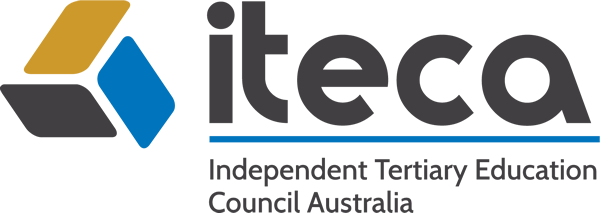
We are using cookies to give you the best experience on our site. By continuing to use the website you agree to our Cookie Policy.
- Higher Education
HNC in Early Childhood Education and Care
Course title
Higher National Certificate in Early Childhood Education and Care
Campus location
Why study this course?
The Higher National Certificate in Early Childhood Education and Care is an excellent choice for those aspiring to make a positive impact on young children’s lives. This program offers a comprehensive curriculum that combines theoretical knowledge with practical skills, preparing students for a variety of roles in early childhood education. With a focus on child development, safeguarding and professional practice, the course equips students with the expertise needed to excel in educational settings enabling them to achieve “full and relevant” status.
Compulsory Modules
Unit 1: Personal and Professional Development through Reflective Practice.
Unit 2: Protecting Children in Early Childhood education and Care Environments.
Unit 3: Play and Learning in Early Childhood.
Unit 4: Supporting and Promoting Children’s Development (Babies and Toddlers).
Unit 5: Supporting and Promoting Children’s Development (Young Children).
Unit 6: Promoting Healthy Living.
Unit 7: Preparing for Research (Pearson-set Project).
Unit 8: Promoting inclusive Early Childhood Education and Care Environments.
Students will be assessed through a variety of methods to ensure a comprehensive evaluation of their skills and knowledge. These methods include writing essays and reports to demonstrate their understanding and analytical abilities, creating posters and leaflets to showcase their ability to convey information visually and concisely, and participating in professional discussions to assess their verbal communication and critical thinking skills. Additionally, students will deliver presentations to evaluate their ability to present information clearly and effectively to an audience of their peers and assessors.
How to apply
Full-time students should apply via UCAS Apply, using the UCAS code: CECC
Click here to watch a video on how to use UCAS Apply
Should any applicants have questions or queries, please contact the Student HUB for further guidance:
Phone: 0121 602 7777
Or via the live chat facility on the College’s website www.halesowen.ac.uk
Entry Requirements
BTEC or NCFE CACHE Level 3 Early Years Educator (or related subject) qualification.
A minimum of 4 GCSE’s at grade 4 and above including Maths and English. Applicants without a grade four in either Maths or English would be able to present an equivalent qualification such as Level 2 Functional Skills however, this could hinder further progression opportunities into “top up” years or employment unless GCSE level is obtained before further progression.
An Access to Higher Education Diploma in a relevant subject area such as Health or Early Years.
For learners without the above subject related grades but who are employed, we are able to discuss this on a case-by-case basis.
September 2024
Day and time
Tuesday: 9am – 4:30pm.
Thursday: 5pm-7pm.
Course code
For any queries regarding this course please contact:
Liam Pinches – Email: [email protected]
APPLY NOW Find your perfect course and secure your place
Our accreditation and awards

8 Free Online Childcare Training Courses with Certificates
Free online childcare training courses with certificates can help educators elevate their expertise and learn new techniques to keep children safe and healthy.
- brightwheel
- Staff development

Online childcare training courses are a convenient way to learn new skills or refine existing ones. Expanding your knowledge can help you acquire new techniques to help keep children safe and healthy and create a high-quality, inclusive program. Below we explore the best free online childcare training courses with certificates.

Ongoing asynchronous professional development
As a childcare center director, it's important to offer professional development opportunities to your staff to help improve their skills and boost children's learning outcomes. This continuing education in the form of seminars, workshops, courses, conferences, or online training, can support your teachers in their career development. Teachers can be exposed to the latest education trends and acquire new skills to become more effective educators.
As part of your center's ongoing professional development initiatives, you can offer budget-friendly, online training courses for staff to choose from based on their individual needs and have them complete it from the convenience of the center or home asynchronously as part of their professional development requirements. While every state has different requirements for childcare staff training, such as a certain number of in-service training hours per year, there are many valuable training resources available that can greatly benefit your staff beyond what's required.
With brightwheel, you can easily record your staff's training hours and certifications with our all-in-one childcare management software . Streamline your center's admissions process, save time on administrative tasks, and enable your staff to build deeper relationships with families.
For example, you may have teachers at your center who are working toward their Childhood Development Associate (CDA) credential or need additional continuing education unit (CEU) hours to renew their credential each year. Depending on your center's budget, you may choose to cover the entire cost of training or pay for a percentage of training costs every year for your teachers. However, there are also a number of free training resources to take advantage of that offer helpful information and continuing education credits. Prioritizing your staff's professional growth will show that you value them and are committed to their careers, which can boost employee engagement and retention .
You can also use your ongoing staff evaluations as opportunities to check in on your teachers’ progress towards their growth goals. By using this time to discuss their professional development, and not just their work performance, you’ll reinforce your commitment to helping them become the best early educator they can be.

Free online childcare training courses with certificates
You don't have to spend a lot of money to learn new skills that can be applied in an early education setting. Below are several resources to help you advance your skills.
1. Trauma-informed care and the pyramid model
ProSolutions Training offers a free childcare training course on trauma-informed care and applying these practices to the pyramid model .
"Trauma-informed Care and the Pyramid Model" can be completed in five hours. The course offers a free certificate of completion and 0.50 continuing education credits.
2. Recognizing and reporting suspected child abuse
ProSolutions Training offers a free childcare training course that teaches educators how to recognize signs of child abuse, the importance of reporting suspected abuse, and how to identify children who may be at higher risk of being abused or neglected.
“Recognizing and Reporting Suspected Child Abuse” can be completed in two hours. The course offers a free certificate of completion and 0.20 continuing education credits.
3. Classroom WISE
The Mental Health Technology Transfer Center Network partners with the National Center for School Mental Health to offer Classroom WISE (Well-Being Information and Strategies for Educators) .
Classroom WISE consists of several modules to choose from that are self-paced and can be completed in five hours. The course offers a free certificate of completion once completed.
The training description specifies the online courses is for K-12 educators, but it deserves a notable mention as many early learning centers include kindergarten readiness programs or a kindergarten class.
4. Obesity prevention training
Bright Futures offers the free online course "One Step at a Time: Helping Young Children Be Physically Active!" One Step at a Time is a self-guided obesity prevention training course for childcare educators.
The course curriculum consists of three modules. The first module discusses why it's essential for young children to be physically active and explains how much physical activity young children need. The second module covers how childcare providers can promote physical activity in their programs, and the third module gives tips on how to work with families to help encourage children's physical activity.
You can complete the obesity prevention training course in one hour. After completing the self-assessment quizzes at the end of each module, you can download a free certificate of completion. You can also apply for one continuing education hour from your state.

5. Pediatric first aid
First Aid for Free offers a free online course that teaches you first aid for infants and young children.
The pediatric first aid course curriculum consists of two modules. The first introductory module covers lifesaving skills such the recovery position for unconscious and breathing children and babies, CPR, and what to do in the event of choking. The second module covers common medical conditions including meningitis, asthma, and croup.
The self-guided pediatric first aid course includes a quiz at the end of each module. In addition, educators receive a free certificate once they complete the course units.
Since this module is self-guided, the time frame depends on how quickly the module and quiz are completed.
6. Watch Me! Celebrating milestones and sharing concerns
The Centers for Disease Control and Prevention (CDC) offers a free training course that teaches early childhood educators how to monitor children’s progress toward developmental milestones and discuss children’s progress with their families. This course includes a free certificate of completion. After completing the course, educators can earn training credit by completing an evaluation and passing a post-test with at least an 80% score.
This course:
- Explains the importance of monitoring children’s development
- Describes educators’ role in monitoring children’s development
- Explains how to monitor children’s developmental milestones and discuss findings with children’s parents
7. Social and emotional competence of children
ProSolutions Training offers a free childcare training course that teaches educators how social and emotional competence in children can make it less likely for children to be mistreated.
“Social and Emotional Competence of Children” can be completed in two hours. The course offers a free certificate of completion but doesn’t offer continuing education credits.
8. Playing outdoors
Care Courses offers a free childcare training course that teaches educators about the benefits of outdoor play for young children.
“Playing Outdoors” teaches educators:
- The year-round benefits of outdoor play
- How to recognize outdoor environments and activities that encourage young children to explore their environment
“Playing Outdoors” can be completed in one hour. The course offers a free certificate of completion and 0.1 continuing education credits.
9. Working with children with special educational needs (free with a paid certificate)
Global Text Project offers a free Alison course that teaches childcare professionals how to work with children with special educational needs. The course also teaches childcare providers the core elements of special education and the roles and responsibilities of educators.
This course describes the most common disabilities educators encounter in the classroom and explains how to develop an individual educational plan (IEP) for students with special educational needs.
"Working with Students with Special Educational Needs" can be completed in approximately three hours. The course offers a certificate of completion for $21.44 that you can download as a PDF. You can also buy a printed copy of your certificate for $27 and a framed copy for $37.
Gain the skills to succeed by enrolling in an online childcare training course
Enrolling in an online childcare training course is a convenient way to gain the skills you need to excel as a childcare educator. Earning a childcare training certificate proves that you have the skills to ensure the well-being of the children in your care and that your childcare center prides itself on hiring staff that knows how to keep children safe and healthy.
Brightwheel is the complete solution for early education providers , enabling you to streamline your center’s operations and build a stand-out reputation. Brightwheel connects the most critical aspects of running your center—including sign in and out, parent communications, tuition billing, and licensing and compliance—in one easy-to-use tool, along with providing best-in-class customer support and coaching. Brightwheel is trusted by thousands of early education centers and millions of parents. Learn more at mybrightwheel.com
Childcare and Preschool Staff Evaluation Forms
A template for early childhood education staff performance evaluations.

Subscribe to the brightwheel blog

Recent Posts
- How to Plan a Successful Fundraiser for Your Preschool June 21, 2024
- Navigating Childcare Grants and Other Funding Resources in Wyoming June 21, 2024
- The Importance of Childcare Staff Training for Educators June 21, 2024
- Navigating Childcare Grants and Other Funding Resources in West Virginia June 21, 2024
- Curriculum Planning 101: Lesson Plans for Infants, Toddlers, and Preschoolers June 21, 2024
Posts by Tag
- Running a business (219)
- Child development (164)
- Curriculum (84)
- Financial health (68)
- Small business funding (55)
- Staff development (47)
- Family engagement (40)
- COVID-19 (30)
- Technology (27)
- Family communications (15)
- Staff retention (15)
- ECE career growth (13)
- For Parents (10)
- Diversity and inclusion (9)
- Enrollment (7)
- Staff appreciation (7)
- Marketing (6)
- Public policy (6)
- Staff hiring (5)
- ECE current events (4)
- Family retention (4)
- Salary guides (4)
- Leadership (2)
- Programs and courses
Early Learning and Child Care – diploma

Program delivery notes
* For students who have completed the certificate and are applying directly to Year 2.
Post-Graduation Work Permit
The in-person delivery of this program meets the eligibility criteria for the Post-Graduation Work Permit Program for international students.
Recognized by Colleges and Institutes Canada as a program of excellence, the Early Learning and Child Care diploma program combines theory with practice to prepare graduates for Early Childhood Educator III certifications from the Government of Alberta.
If you are currently employed in this field, there is funding available for professional development and wage top ups for additional post-secondary training.
Graduates of NorQuest's Early Learning and Child Care – certificate program or other Early Learning and Child Care certificate programs should apply to the Year 2 delivery of this program.
What to expect from the program
Early learning and child care professionals play an important role in supporting families and promoting healthy growth. Research shows the early years are critical in shaping a child's overall development. The importance of play in how children understand the world around them is embedded throughout this program, and it aligns well with current Canadian curriculum frameworks in early learning and care.
Graduate with experience
NorQuest College believes in the importance of on-the-job experience that provides an enriched learning opportunity.
You’ll graduate this program with 800 hours of work experience from four practicums.
Career opportunities
Graduates of this program have diverse opportunities to provide child-care services. The child-care field is considered to be an above-average growth profession with increasing annual demand for employees.
For more information on related careers see:
- ALIS OCCinfo occupational profiles
Related programs
Day home provider, early learning and child care – certificate.
Have a question about the Early Learning and Child Care – diploma program?
Privacy notice statement
The personal information requested on this form is collected under the authority of section 33(c) of Alberta’s Freedom of Information and Protection of Privacy Act and will be used to process your request for information, for internal statistical and enrolment management purposes and to provide ongoing information regarding our courses, programs or events. For information about the collection and use of this information, contact the Regulatory & Compliance Coordinator at 10215 108 Street NW, Edmonton, AB, T5J 1L6, Tel. 780.644.6000.

LARAMIE COUNTY COMMUNITY COLLEGE
- REQUEST INFO
- Pathways
- Human and Public Services
Elementary and Early Childhood Education Program

Early childhood educators play a critical role in the development of children - helping them build a strong foundatio n for future learning, behavior and health. Young children develop quickly and watching them grow and thrive can be incredibly rewarding.
What will I learn?
The LCCC Elementary and Early Childhood Education Program develops competent, highly reflective educators
- who understand how diverse learners grow and develop
- who integrate current research into teaching practice
- who apply effective assessment and instructional strategies
- who demonstrate personal responsibility in the profession
Students in the education program learn how to create engaging lessons and activities to meet the needs of different learners. They also participate in classroom observations and a practicum in a school setting.
Education majors must pass a Wyoming Division of Criminal Investigation background check. Additional screenings may be required for students who complete their practicum experience outside of Wyoming.
After completing the education degree program at LCCC, students must transfer to a four-year institution to pursue a bachelor's degree before applying for teacher licensure.
Associate of Arts
The Elementary and Early Childhood Education Program is designed for students interested in pursuing a teaching career in an elementary (K-6) setting. Students gain knowledge and skills by participating in student-centered activities, inquiry projects, and practical classroom experiences in schools.
Most school districts require anyone observing, volunteering, working, with students to submit to a background check. Before you begin your practicum in the school setting, education majors must pass a Wyoming Division of Criminal Investigation background check. Additional screenings may be required for students who complete their practicum experience outside of Wyoming.
Available online.
- Program Map
Transfer Agreements
- University of Wyoming | Signed Agreement | Transfer Course List
- Valley City State University | Signed Agreement | Transfer Course List
What can I do with this degree?
Graduates need to continue their education at a four-year institution to earn at least a bachelor's degree to become a teacher in a public or private school setting:
Elementary School Teachers, Except Special Education Career Information
Visit Career Coach for additional information about Elementary School Teachers, Except Special Education.
Special Education Teachers, Elementary School Career Information
Visit Career Coach for additional information about Special Education Teachers, Elementary School.
Teaching Assistants, Preschool, Elementary, Middle, and Secondary School, Except Special Education Career Information
Visit Career Coach for additional information about Teaching Assistants, Preschool, Elementary, Middle, and Secondary School, Except Special Education.
Visit LCCC's Career Resources to find tools for selecting the right program for you and marketing yourself to future employers.
Cost of Attendance
For general college expenses, students should view LCCC’s cost of attendance . Students in this program typically incur additional expenses of approximately $20 for a background check.

- Bahasa Indonesia
- Eastern Europe
- Moscow Oblast
Elektrostal
Elektrostal Localisation : Country Russia , Oblast Moscow Oblast . Available Information : Geographical coordinates , Population, Area, Altitude, Weather and Hotel . Nearby cities and villages : Noginsk , Pavlovsky Posad and Staraya Kupavna .
Information
Find all the information of Elektrostal or click on the section of your choice in the left menu.
- Update data
| Country | |
|---|---|
| Oblast |
Elektrostal Demography
Information on the people and the population of Elektrostal.
| Elektrostal Population | 157,409 inhabitants |
|---|---|
| Elektrostal Population Density | 3,179.3 /km² (8,234.4 /sq mi) |
Elektrostal Geography
Geographic Information regarding City of Elektrostal .
| Elektrostal Geographical coordinates | Latitude: , Longitude: 55° 48′ 0″ North, 38° 27′ 0″ East |
|---|---|
| Elektrostal Area | 4,951 hectares 49.51 km² (19.12 sq mi) |
| Elektrostal Altitude | 164 m (538 ft) |
| Elektrostal Climate | Humid continental climate (Köppen climate classification: Dfb) |
Elektrostal Distance
Distance (in kilometers) between Elektrostal and the biggest cities of Russia.
Elektrostal Map
Locate simply the city of Elektrostal through the card, map and satellite image of the city.
Elektrostal Nearby cities and villages
Elektrostal Weather
Weather forecast for the next coming days and current time of Elektrostal.
Elektrostal Sunrise and sunset
Find below the times of sunrise and sunset calculated 7 days to Elektrostal.
| Day | Sunrise and sunset | Twilight | Nautical twilight | Astronomical twilight |
|---|---|---|---|---|
| 23 June | 02:41 - 11:28 - 20:15 | 01:40 - 21:17 | 01:00 - 01:00 | 01:00 - 01:00 |
| 24 June | 02:41 - 11:28 - 20:15 | 01:40 - 21:16 | 01:00 - 01:00 | 01:00 - 01:00 |
| 25 June | 02:42 - 11:28 - 20:15 | 01:41 - 21:16 | 01:00 - 01:00 | 01:00 - 01:00 |
| 26 June | 02:42 - 11:29 - 20:15 | 01:41 - 21:16 | 01:00 - 01:00 | 01:00 - 01:00 |
| 27 June | 02:43 - 11:29 - 20:15 | 01:42 - 21:16 | 01:00 - 01:00 | 01:00 - 01:00 |
| 28 June | 02:44 - 11:29 - 20:14 | 01:43 - 21:15 | 01:00 - 01:00 | 01:00 - 01:00 |
| 29 June | 02:44 - 11:29 - 20:14 | 01:44 - 21:15 | 01:00 - 01:00 | 01:00 - 01:00 |
Elektrostal Hotel
Our team has selected for you a list of hotel in Elektrostal classified by value for money. Book your hotel room at the best price.
| Located next to Noginskoye Highway in Electrostal, Apelsin Hotel offers comfortable rooms with free Wi-Fi. Free parking is available. The elegant rooms are air conditioned and feature a flat-screen satellite TV and fridge... | from | |
| Located in the green area Yamskiye Woods, 5 km from Elektrostal city centre, this hotel features a sauna and a restaurant. It offers rooms with a kitchen... | from | |
| Ekotel Bogorodsk Hotel is located in a picturesque park near Chernogolovsky Pond. It features an indoor swimming pool and a wellness centre. Free Wi-Fi and private parking are provided... | from | |
| Surrounded by 420,000 m² of parkland and overlooking Kovershi Lake, this hotel outside Moscow offers spa and fitness facilities, and a private beach area with volleyball court and loungers... | from | |
| Surrounded by green parklands, this hotel in the Moscow region features 2 restaurants, a bowling alley with bar, and several spa and fitness facilities. Moscow Ring Road is 17 km away... | from | |
Elektrostal Nearby
Below is a list of activities and point of interest in Elektrostal and its surroundings.
Elektrostal Page
| Direct link | |
|---|---|
| DB-City.com | Elektrostal /5 (2021-10-07 13:22:50) |

- Information /Russian-Federation--Moscow-Oblast--Elektrostal#info
- Demography /Russian-Federation--Moscow-Oblast--Elektrostal#demo
- Geography /Russian-Federation--Moscow-Oblast--Elektrostal#geo
- Distance /Russian-Federation--Moscow-Oblast--Elektrostal#dist1
- Map /Russian-Federation--Moscow-Oblast--Elektrostal#map
- Nearby cities and villages /Russian-Federation--Moscow-Oblast--Elektrostal#dist2
- Weather /Russian-Federation--Moscow-Oblast--Elektrostal#weather
- Sunrise and sunset /Russian-Federation--Moscow-Oblast--Elektrostal#sun
- Hotel /Russian-Federation--Moscow-Oblast--Elektrostal#hotel
- Nearby /Russian-Federation--Moscow-Oblast--Elektrostal#around
- Page /Russian-Federation--Moscow-Oblast--Elektrostal#page
- Terms of Use
- Copyright © 2024 DB-City - All rights reserved
- Change Ad Consent Do not sell my data
- Moscow Oblast
- »
- Elektrostal
State Housing Inspectorate of the Moscow Region
Phone 8 (496) 575-02-20 8 (496) 575-02-20
Phone 8 (496) 511-20-80 8 (496) 511-20-80
Public administration near State Housing Inspectorate of the Moscow Region

IMAGES
COMMENTS
Debra has been involved in the Early Childhood Education and Care in various forms for more than 20 years. She has completed her Nursing Diploma and begun her career as a Mothercraft Nurse, caring for babies, toddlers and young children. Debra then took a position as a School Services Officer before she moved on to working as a Fieldworker for ...
Course duration. 58 weeks (including 32 weeks of face to face study, 14 weeks of work placement and 12 weeks for for catch up class, reassessment, additional placement (if required) and holidays. Schedule: • Day class: 2 days per week. • Evening class: 3 evenings per week.
Cost of an Early Childhood Education Online Bachelor's Degree. According to the National Center for Education Statistics, the average public, four-year college charged $9,375 in tuition and fees ...
The CHC50121 Diploma of Early Childhood Education and Care will give you insights and experience into a broad range of specialist skills needed as an early childhood educator. Learners gain experience in: Implement strategies for the inclusion of all children. Analyse information to inform children's learning. Embed environmental ...
Course Code CHC50121. Nationally Recognised Yes. You can choose the delivery mode that best suits your circumstances. Delivery modes available for this qualification include: To achieve this qualification, the individual must have completed a total of least 280 hours of work in a regulated children's education and care service in Australia as ...
Courses are made up of a combination of both core and specialty units. In the Diploma of Early Childhood Education and Care qualification, you'll need to successfully complete 15 , including 12 core and 3 speciality units. Please note, not all specialty units are offered at every TAFE NSW location. It is highly recommended that you check with ...
The demand for diploma-trained early childhood staff has risen strongly over the past decade, and the number of higher-level vacancies is expected to continue to increase. According to the Australian Government's Job Outlook service, there will be around 10,000 child care centre managers required in Australia over the next five years.
To successfully complete the Diploma of Early Childhood Education and Care, students must complete 15 units (12 core and 3 elective units). On-campus classes. ... From 1 January 2024, all Diploma level and above courses will contribute to the Student Services and Amenities fee. Below is the capped amount for 2023 as a guide ahead of fees for ...
Each level for childcare wages gives a definition of what is expected of the employee, the qualifications required and the duties of the employee. Full Time/Part-time. Level 3.4 - (for a Diploma Qualified Educator working as an assistant Educator). $26.66 per hour. $1012.90 per week.
The CHC50121 Diploma of Early Childhood Education and Care is a nationally recognised qualification from the CHC Community Services Training Package. Please note: To enrol in this course you are required to hold a CHC30113 or CHC30121 Certificate III in Early Childhood Education and Care. For further information please read the ECTARC Student ...
A Diploma in Early Childhood Education (ECE) can help you lay the foundation for a career fostering healthy development in as few as 15 months. 1 With a schedule designed for working adults, you can save money by combining traditional online courses with self-directed assessments by showing that you already know the skills in a particular ...
Progress your qualifications with this early childhood diploma that gives you guaranteed entry into a bachelor degree at VU. Build on your passion for play-based learning and gain expertise in providing activities and care for children from birth to six years old. Make a real difference to children's lives by helping them to achieve important ...
Entry to this qualification is open to applicants who hold one of the following qualifications: CHC30121 Certificate III in Early Childhood Education and Care. CHC30113 Certificate III in Early Childhood Education and Care. You must reside in Victoria to access Victorian Government Subsidised Fees and any incentive such as Free TAFE.
NAEYC's online professional development introduces early childhood educators to core ideas from NAEYC's position statements, books, journals, and more. Designed with busy educators in mind, our online resources provide self-paced, interactive learning that connects professional knowledge to daily practice through practical strategies that ...
Our online format allows you to learn at your own pace, on your own schedule, and from anywhere with internet access. CCEI's certificate programs cover a wide range of topics in early childhood education. Our courses are research-based and developed by experts in their field designed to be both informative and engaging.
AVG SALARY*. $28,520/yr. NUMBER OF JOBS. 945,900. Your online child care classes can help you prepare to start a new career working with children at an in-home or center-based facility. Graduates of the program can qualify for entry-level jobs like preschool aide, nursery school aide, or child care provider.
ICT in Primary Education: Transforming children's learning across the curriculum. 4.6. (161 reviews) Beginner · Course · 1 - 3 Months. Free. C. University of London.
Get your career started today. Course code CHC50121. Qualification Diploma of Early Childhood Education and Care. Delivery mode Workplace or distance (online) Course duration 12 months. Nationally recognised Yes. Practical placement hours 280 hours (2 days per week, 7.5 hour days) in a long day care environment that we can help you organise.
The Higher National Certificate in Early Childhood Education and Care is an excellent choice for those aspiring to make a positive impact on young children's lives. This program offers a comprehensive curriculum that combines theoretical knowledge with practical skills, preparing students for a variety of roles in early childhood education.
The training description specifies the online courses is for K-12 educators, but it deserves a notable mention as many early learning centers include kindergarten readiness programs or a kindergarten class. 4. Obesity prevention training. Bright Futures offers the free online course "One Step at a Time: Helping Young Children Be Physically ...
Early Learning and Child Care - diploma (2023-2024) - Learn to provide quality child care in a variety of settings and plan appropriate activities for children in your care. Knowledge of child development, family dynamics, play, and program planning will equip you to support the healthy development of children though child-centred learning experiences. The diploma programs prepare graduates ...
UF Online provides pathways for traditional and non-traditional students such as veterans and mid-career professionals, among others, who can benefit online courses which offer flexibility and access.
The Elementary and Early Childhood Education Program is designed for students interested in pursuing a teaching career in an elementary (K-6) setting. Students gain knowledge and skills by participating in student-centered activities, inquiry projects, and practical classroom experiences in schools. Most school districts require anyone ...
ctv3 newscast for monday june 24th, 2024
Likino-Dulyovo Tourism: Tripadvisor has 61 reviews of Likino-Dulyovo Hotels, Attractions, and Restaurants making it your best Likino-Dulyovo resource.
Elektrostal : Elektrostal Localisation : Country Russia, Oblast Moscow Oblast. Available Information : Geographical coordinates, Population, Area, Altitude, Weather and Hotel. Nearby cities and villages : Noginsk, Pavlovsky Posad and Staraya Kupavna. - City, Town and Village of the world
Cities near Elektrostal. Places of interest. Pavlovskiy Posad Noginsk. Travel guide resource for your visit to Elektrostal. Discover the best of Elektrostal so you can plan your trip right.
State Housing Inspectorate of the Moscow Region Elektrostal postal code 144009. See Google profile, Hours, Phone, Website and more for this business. 2.0 Cybo Score. Review on Cybo.